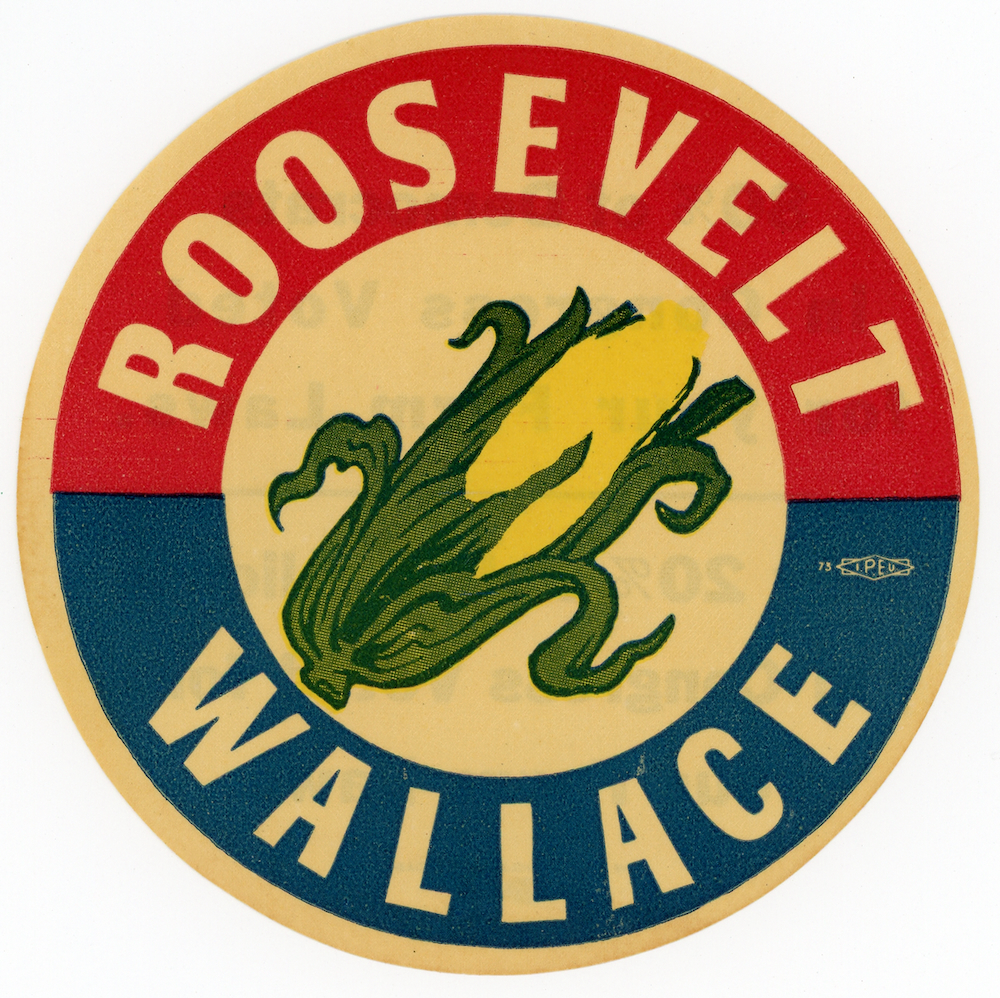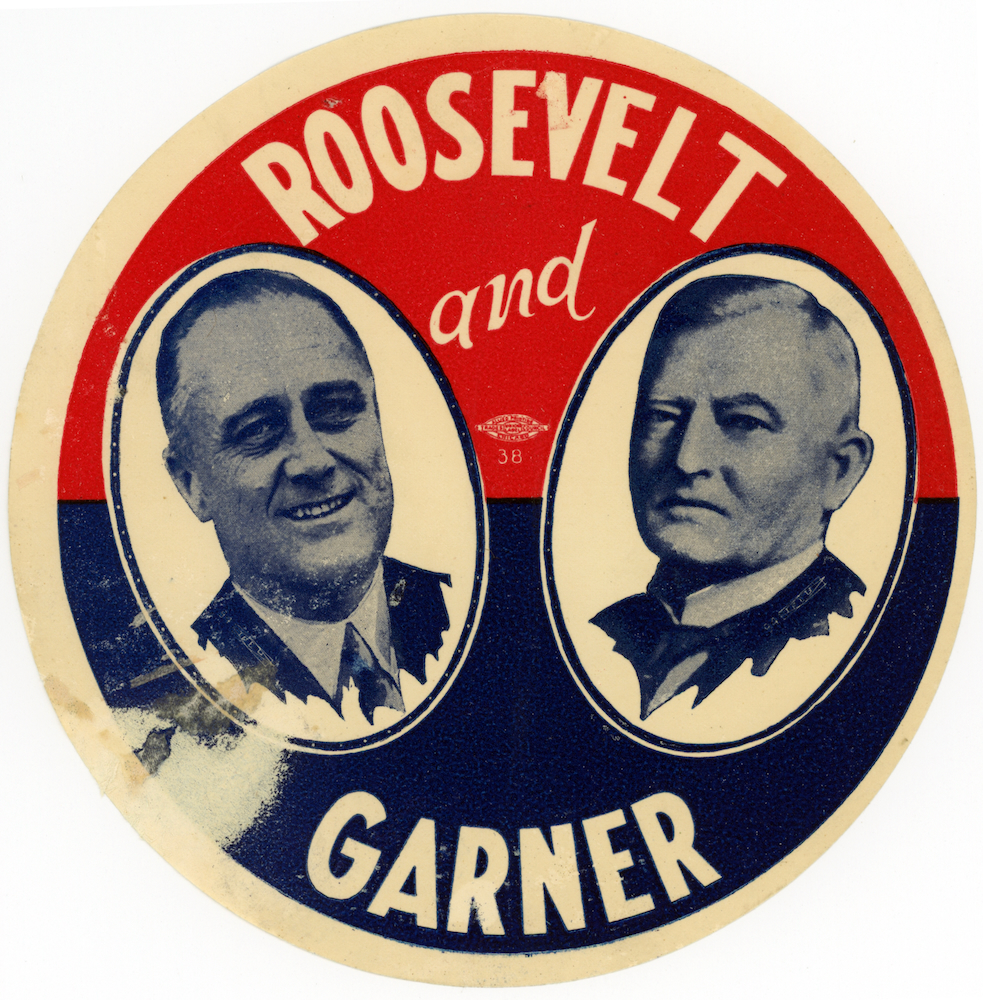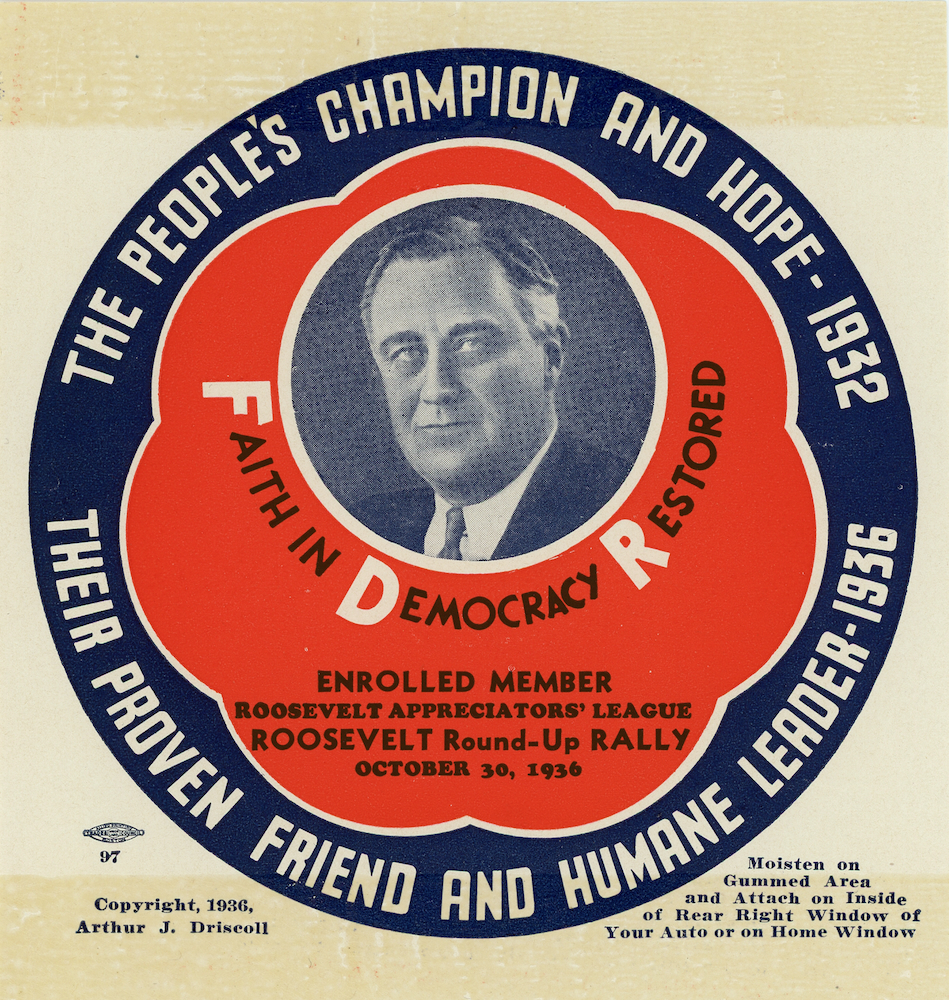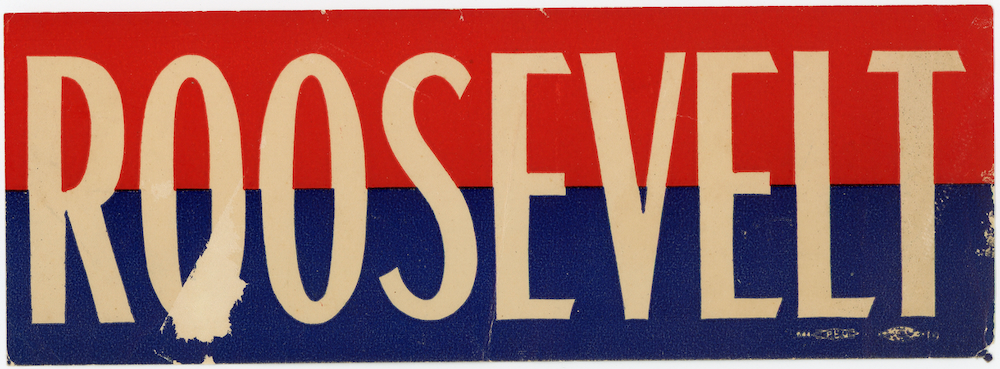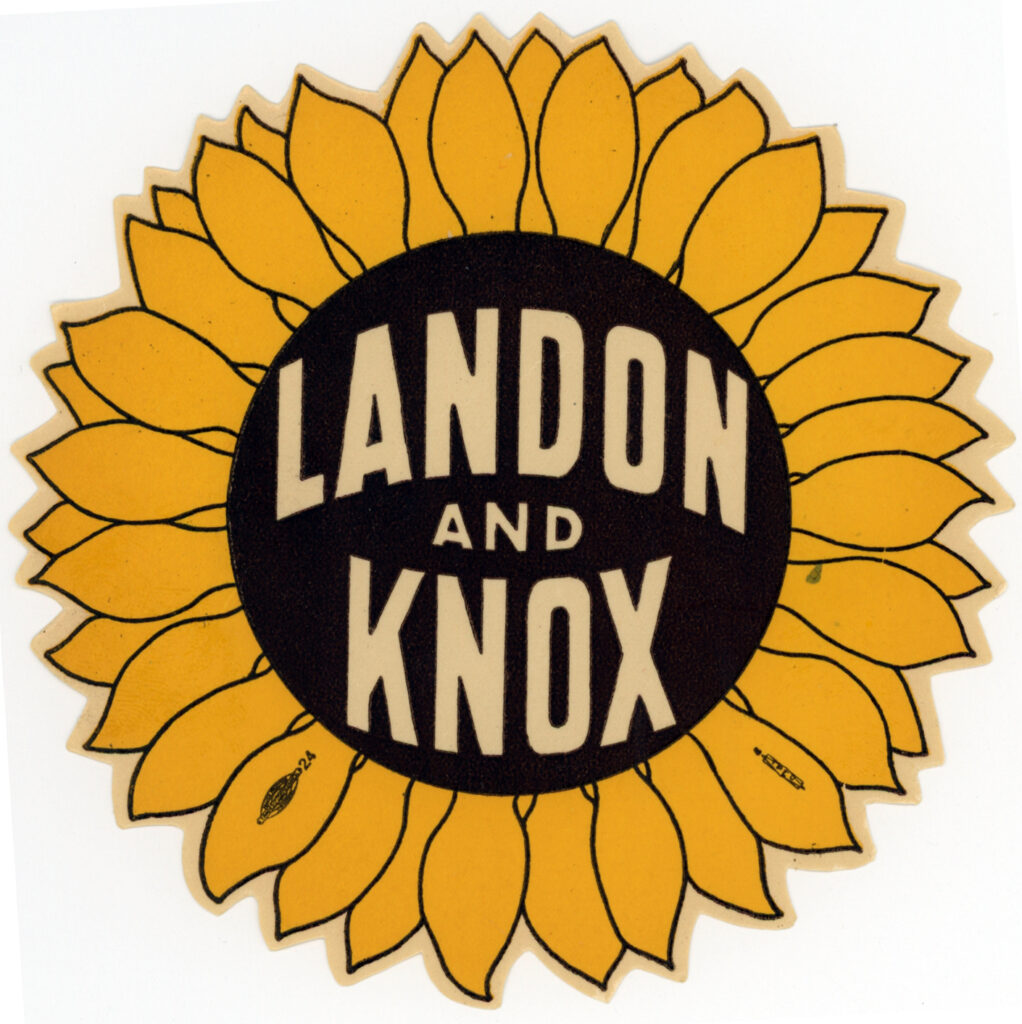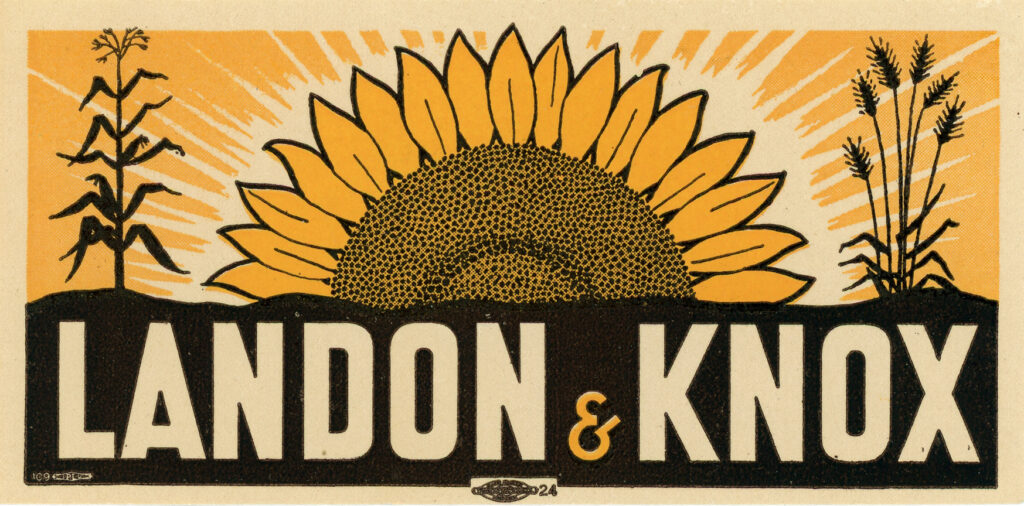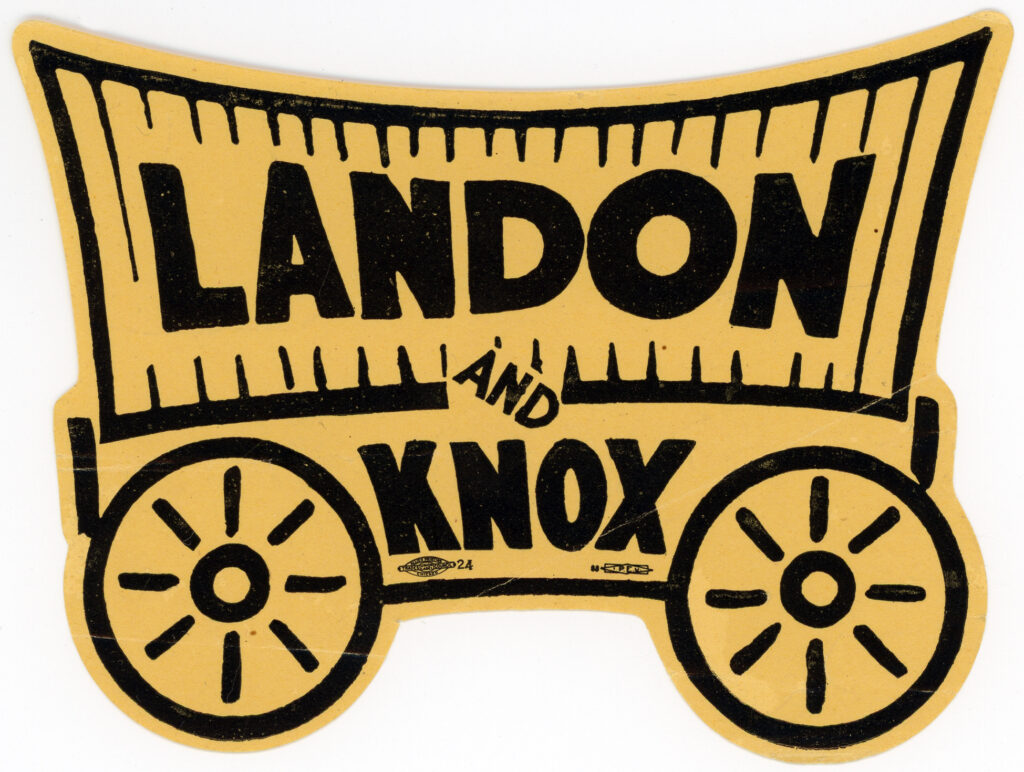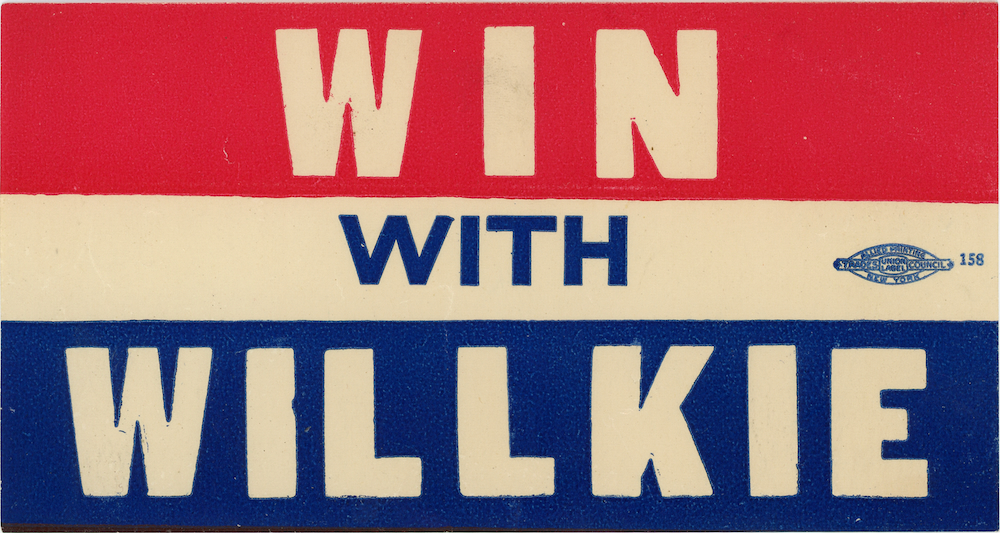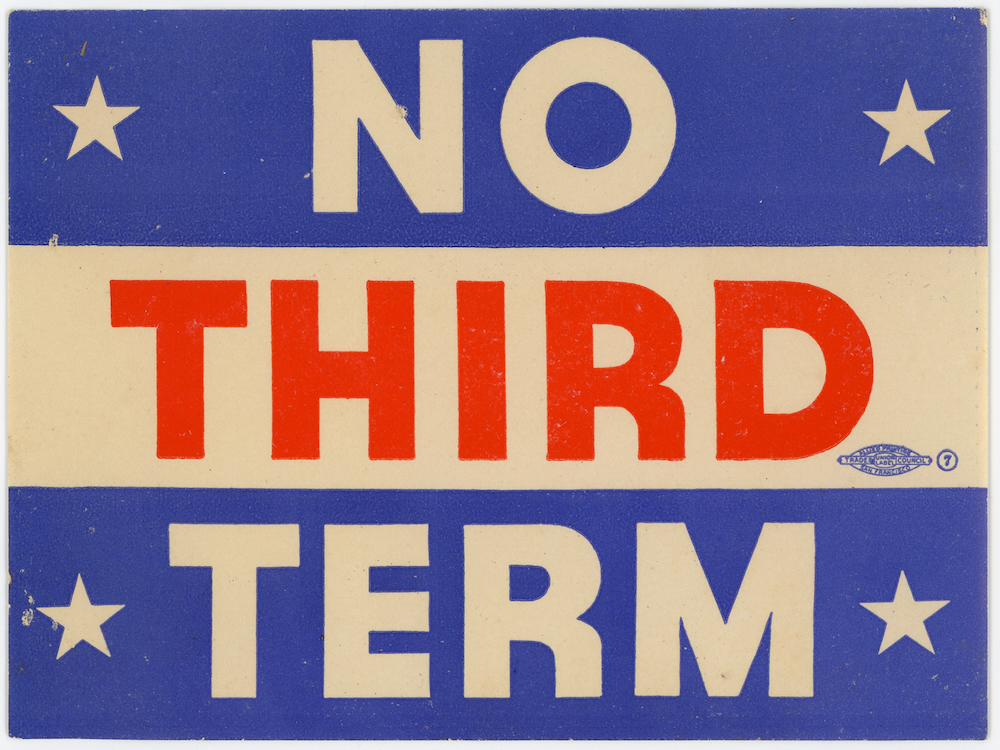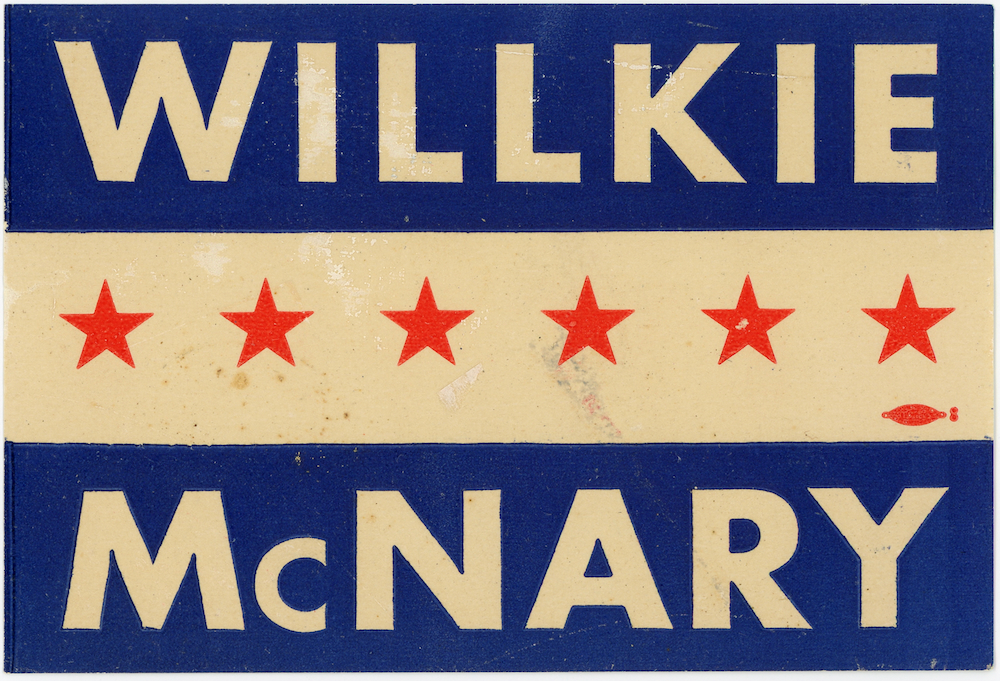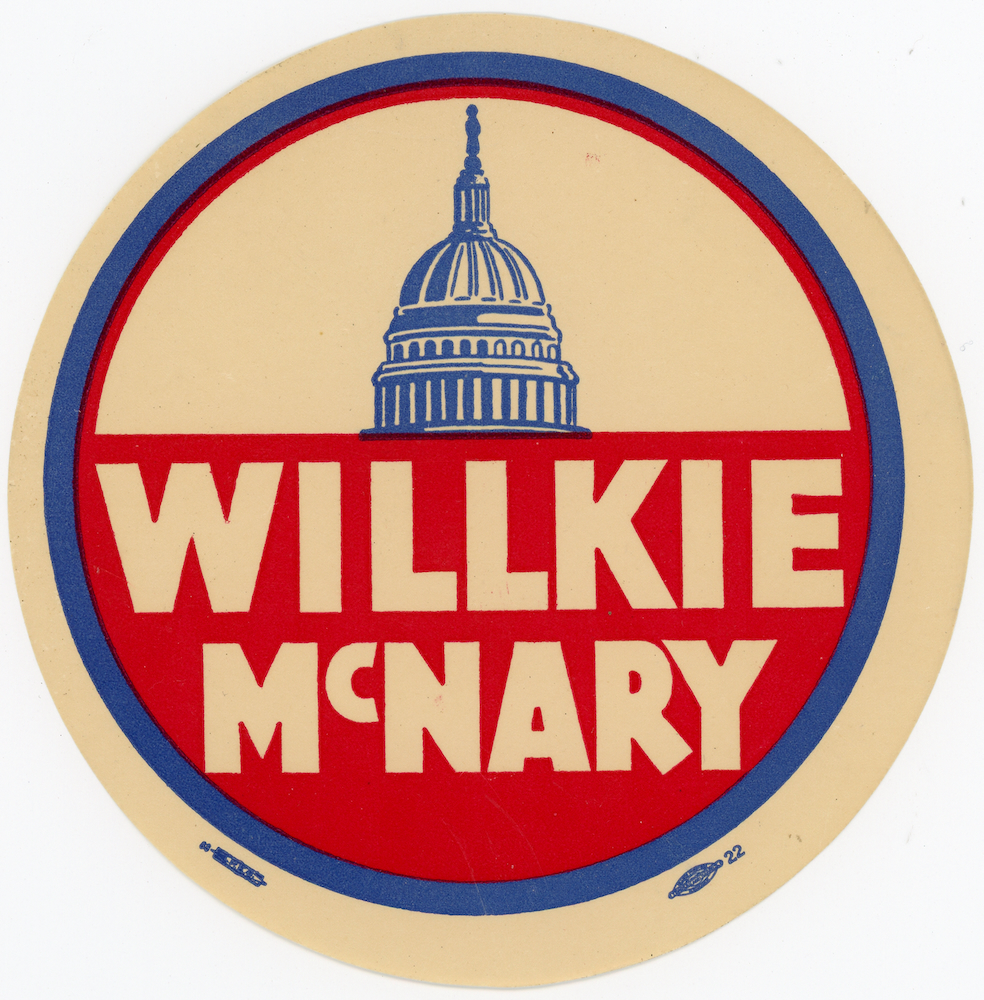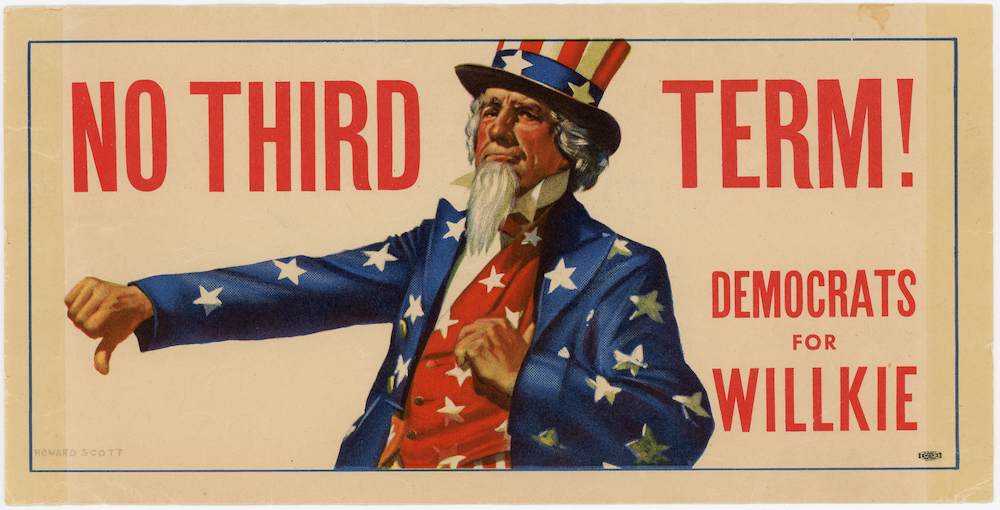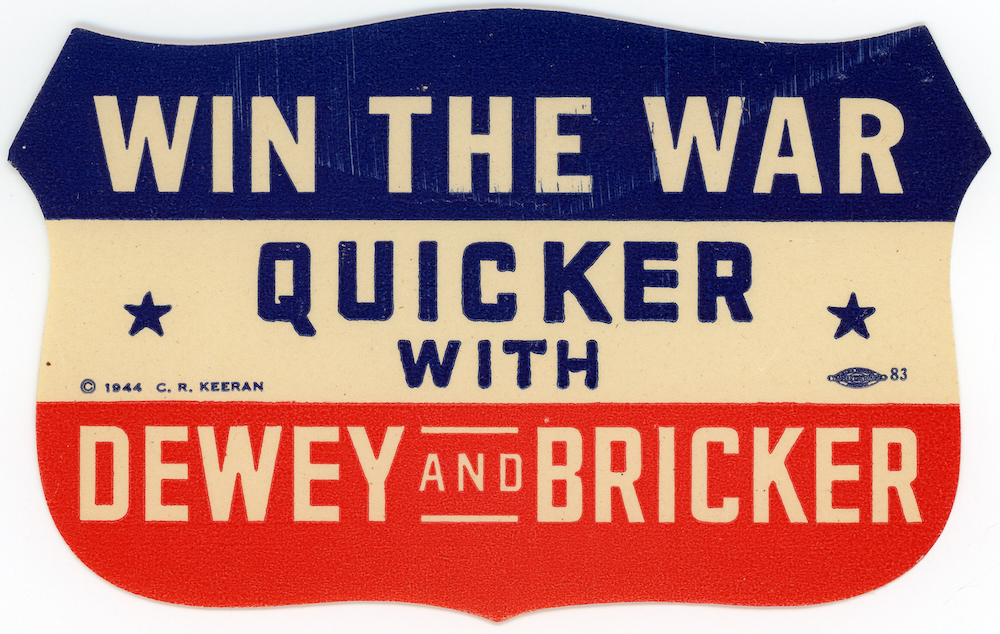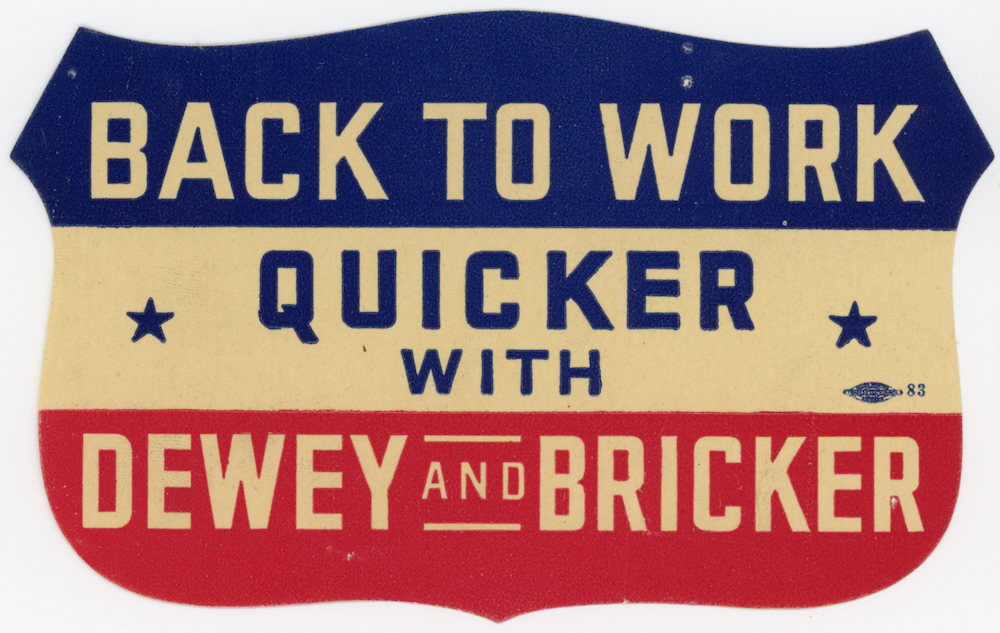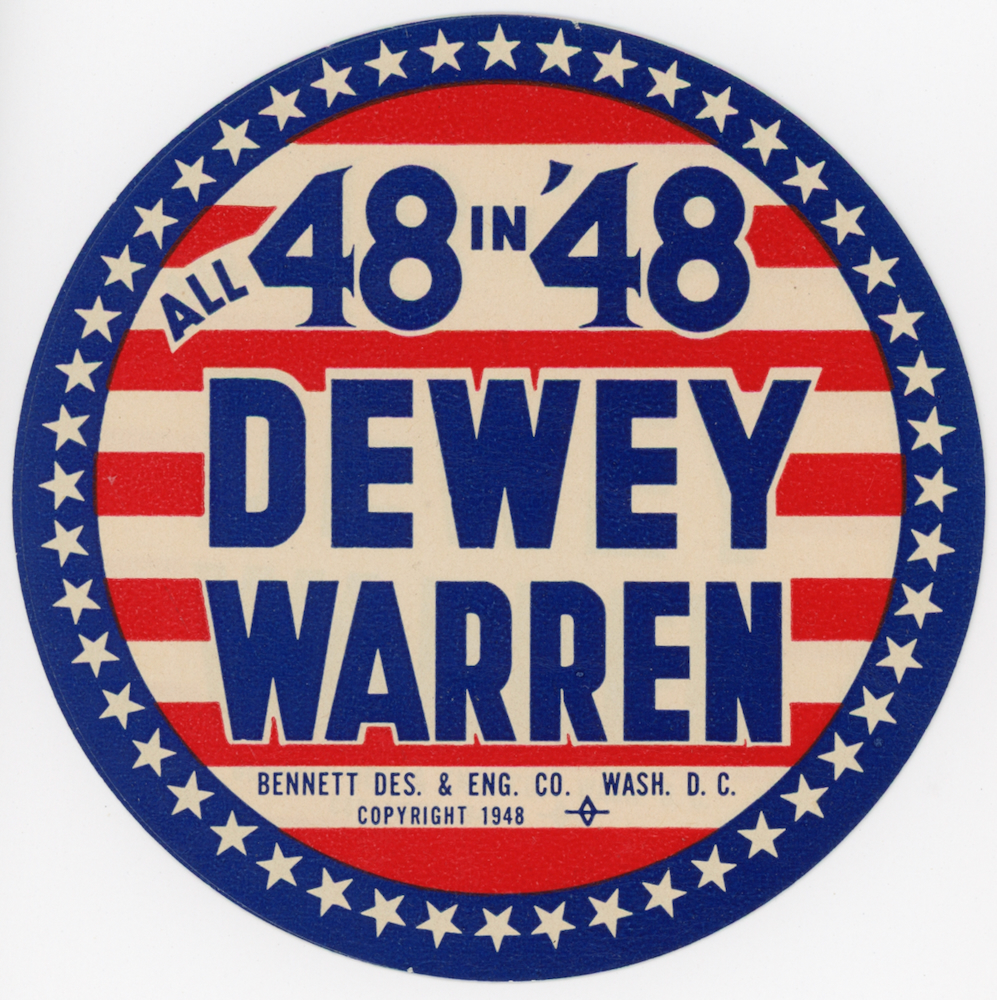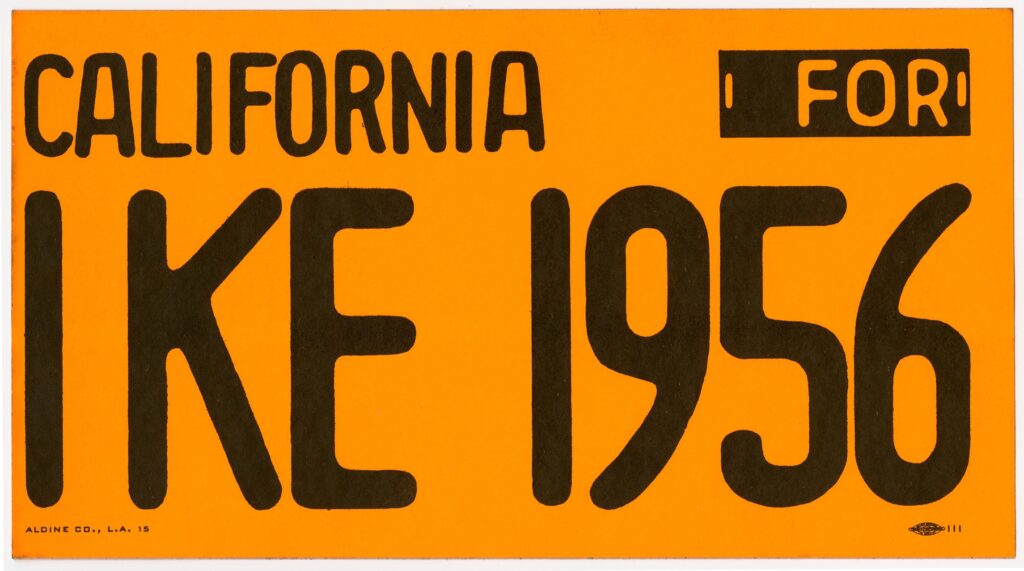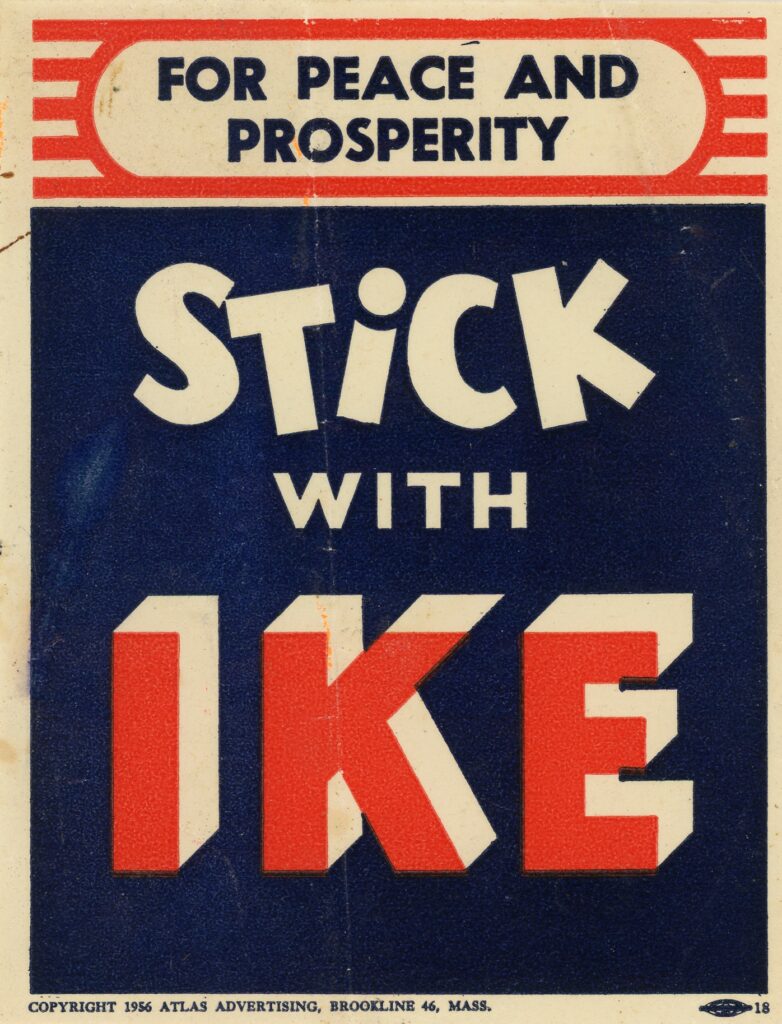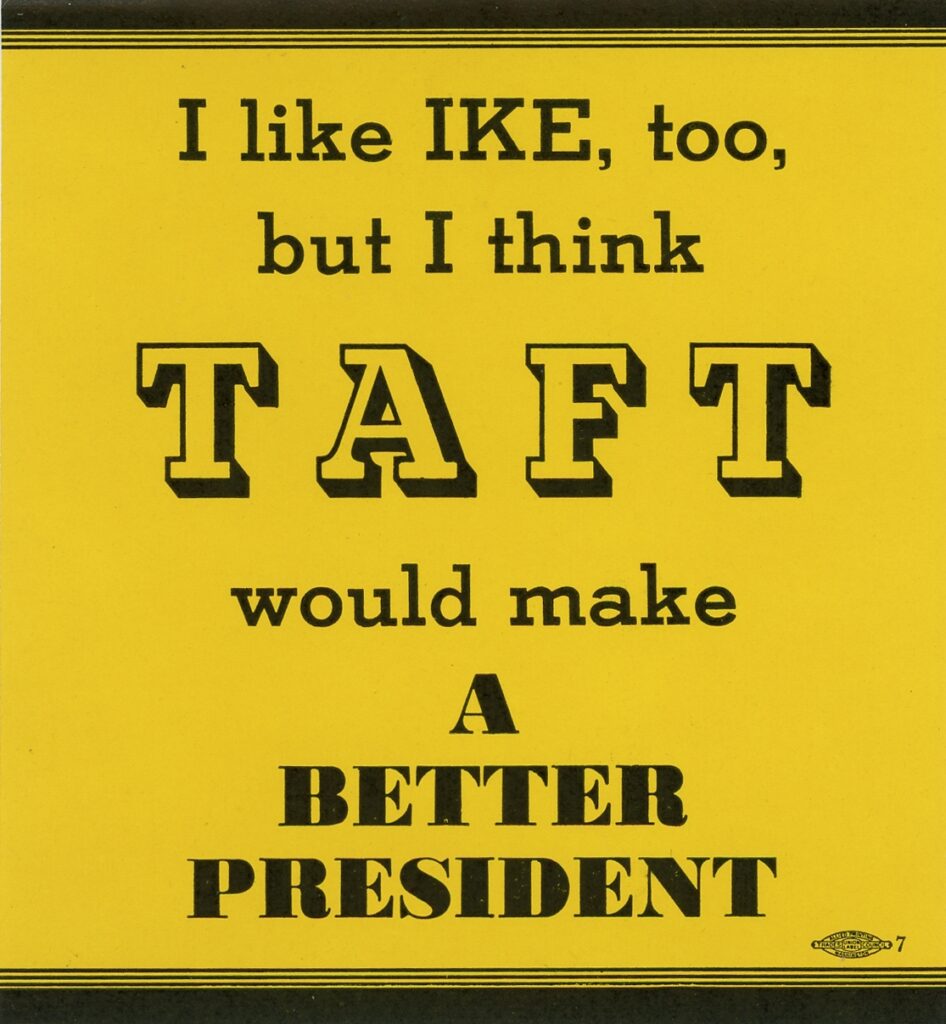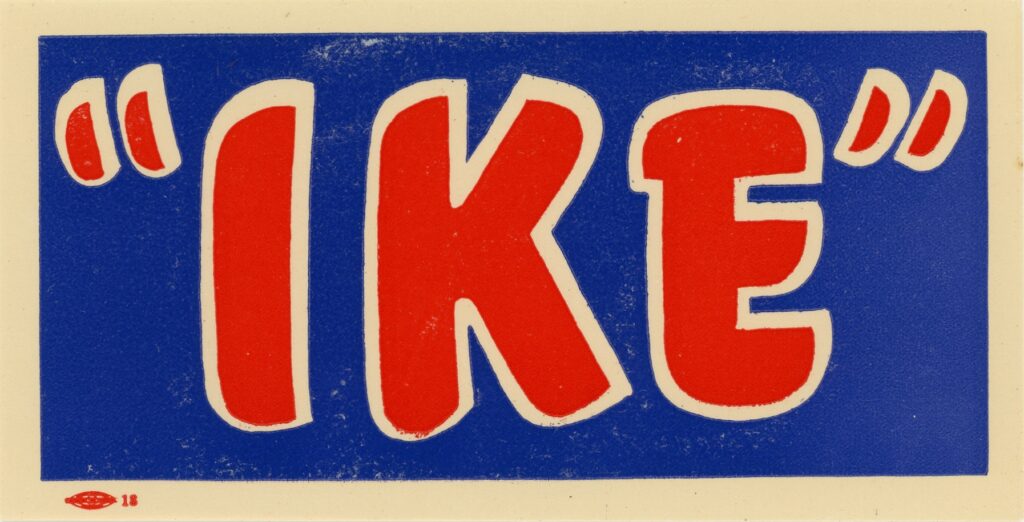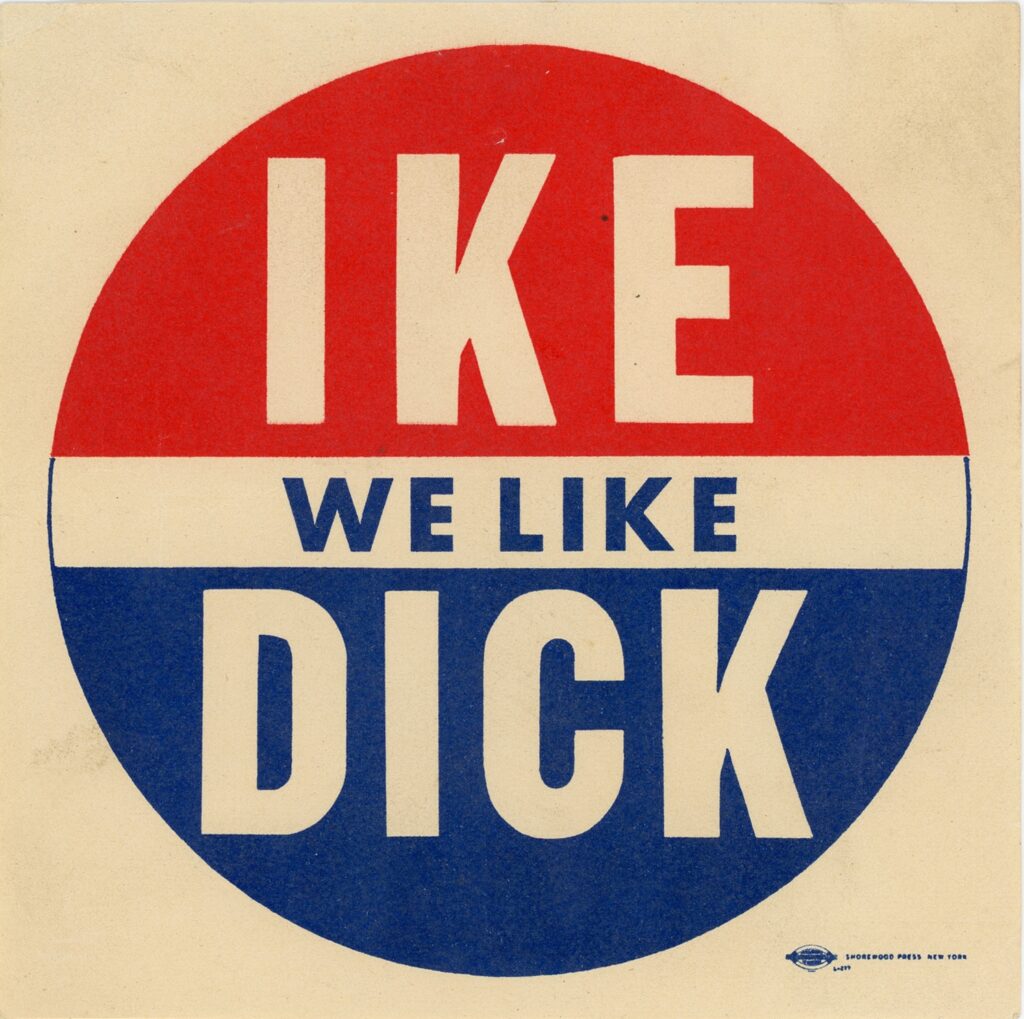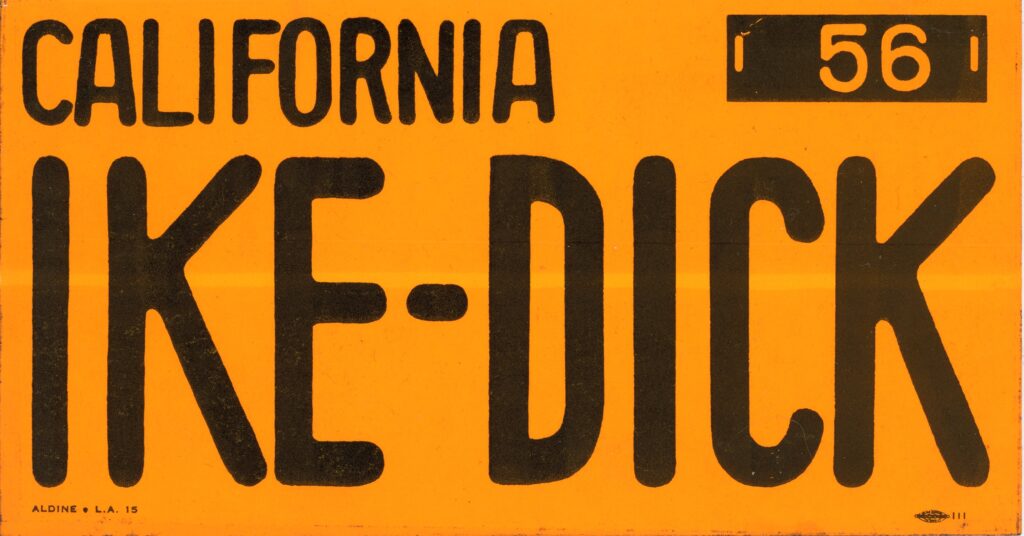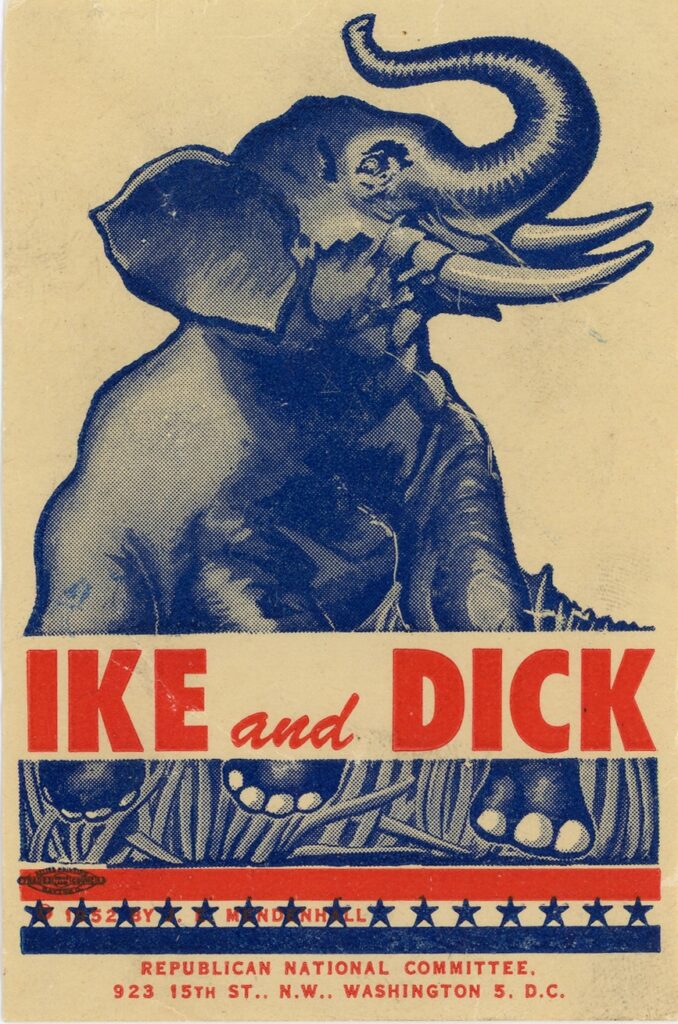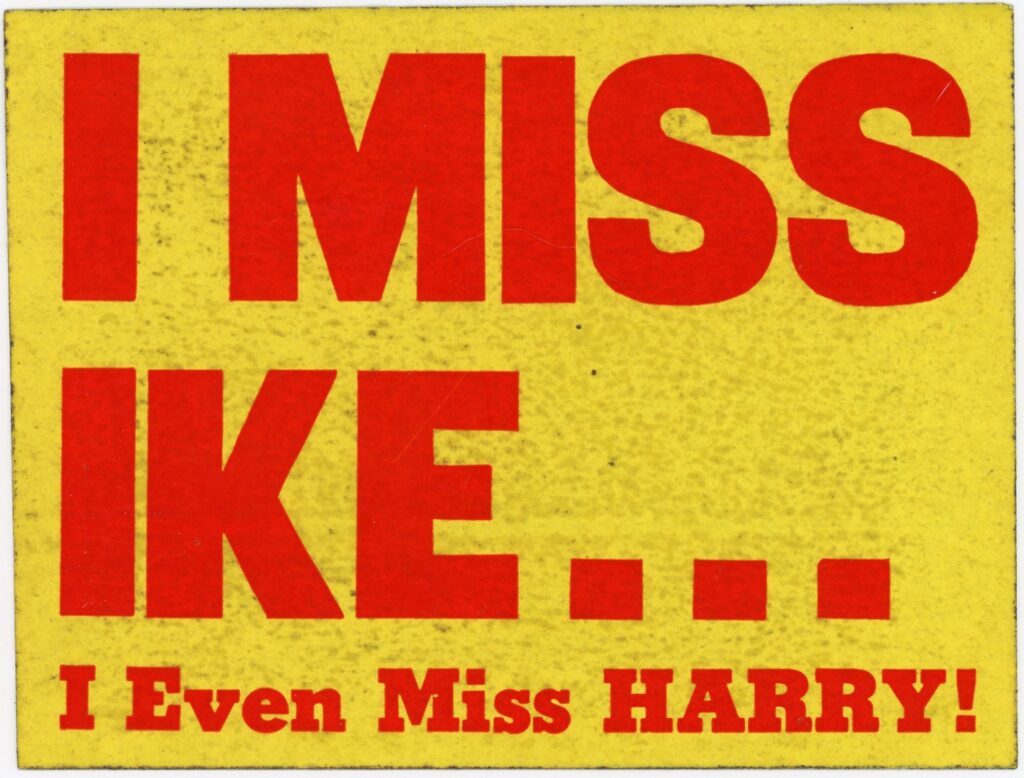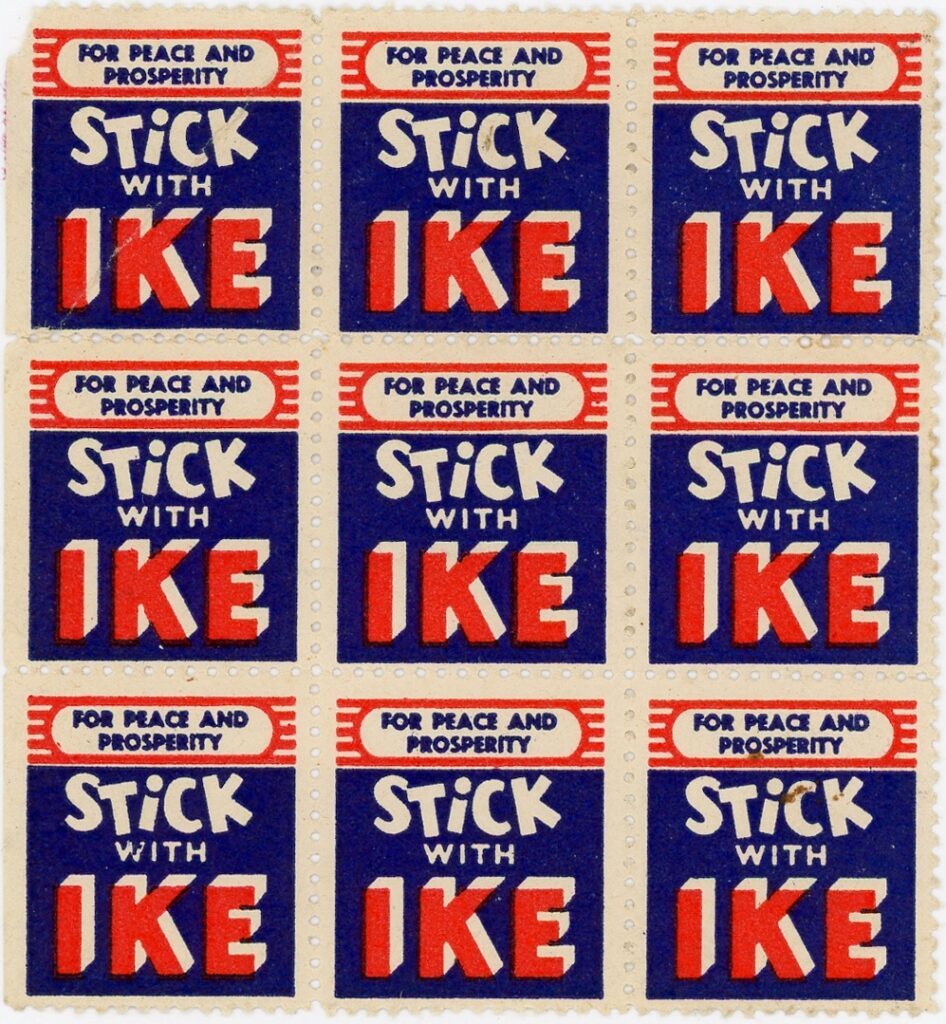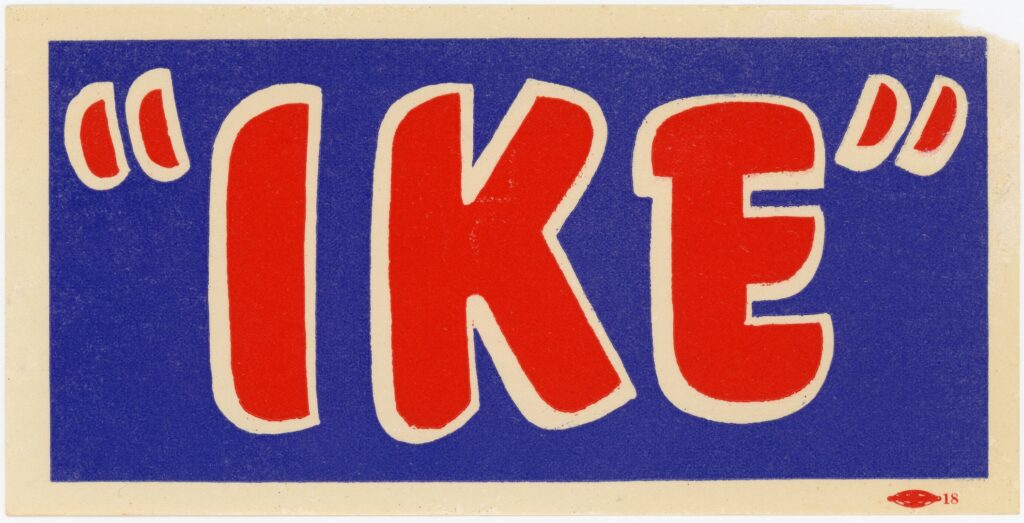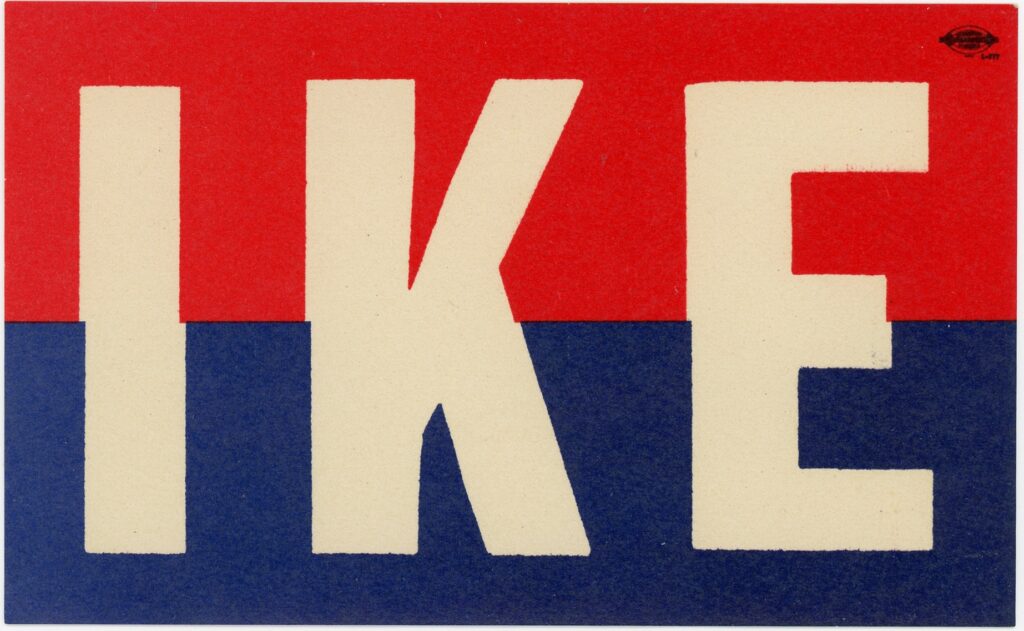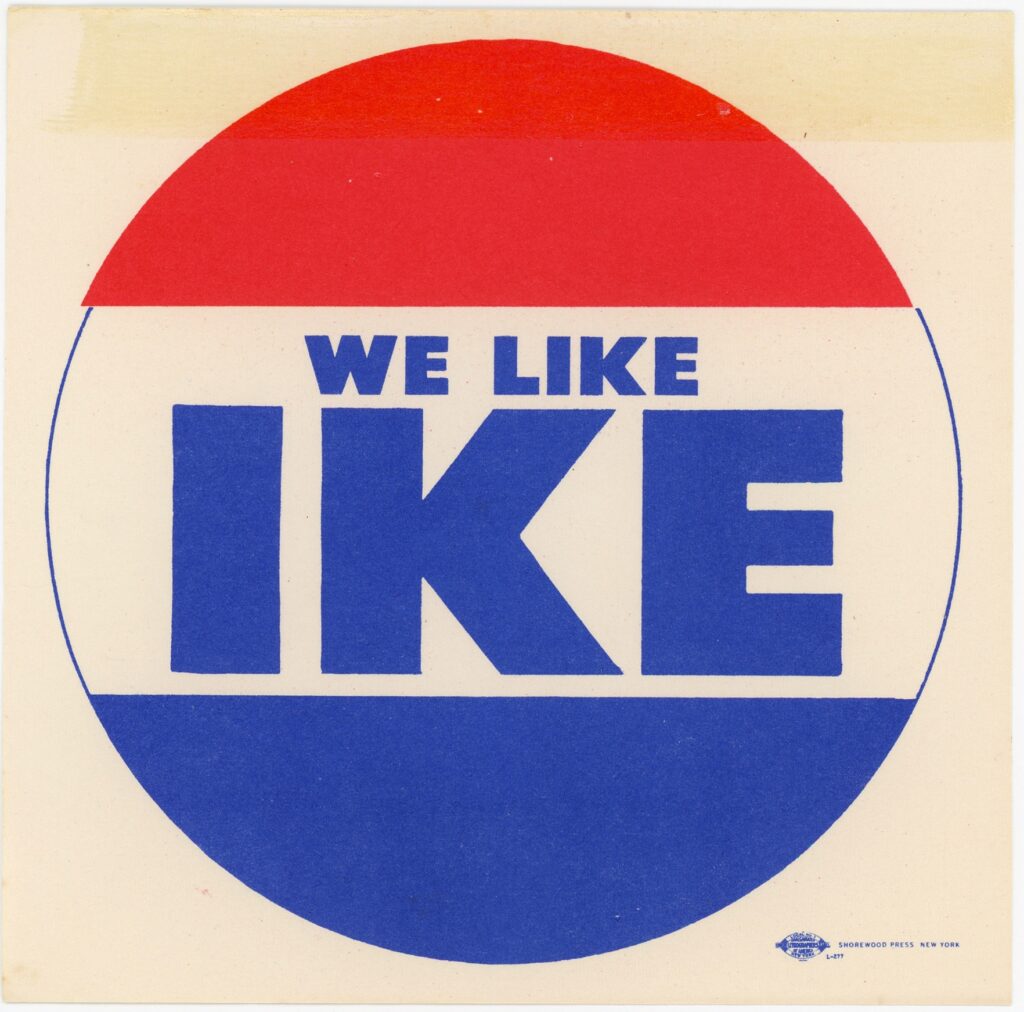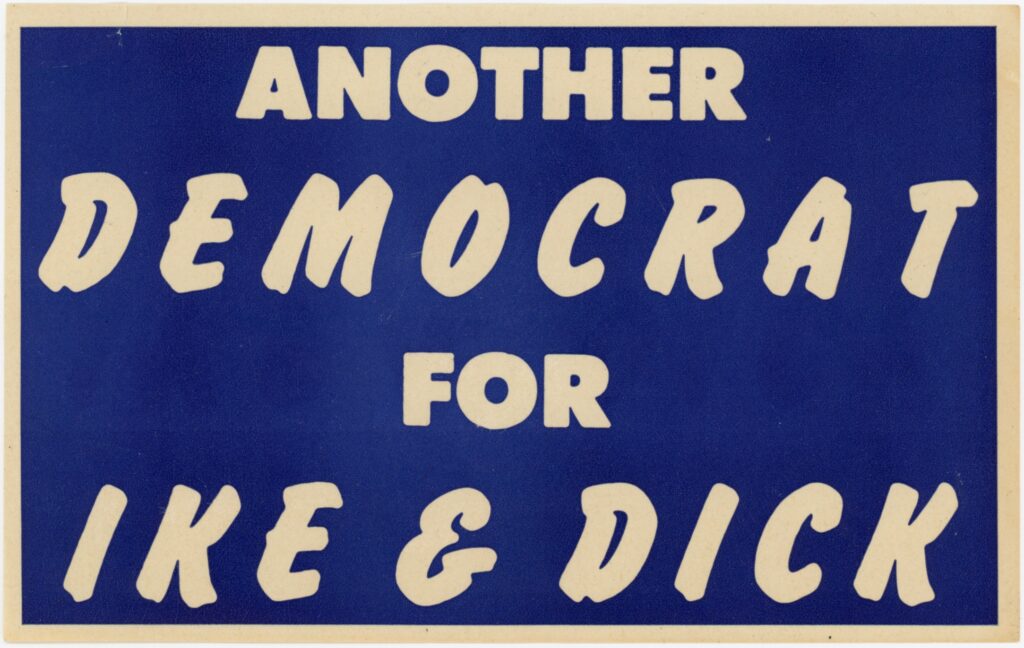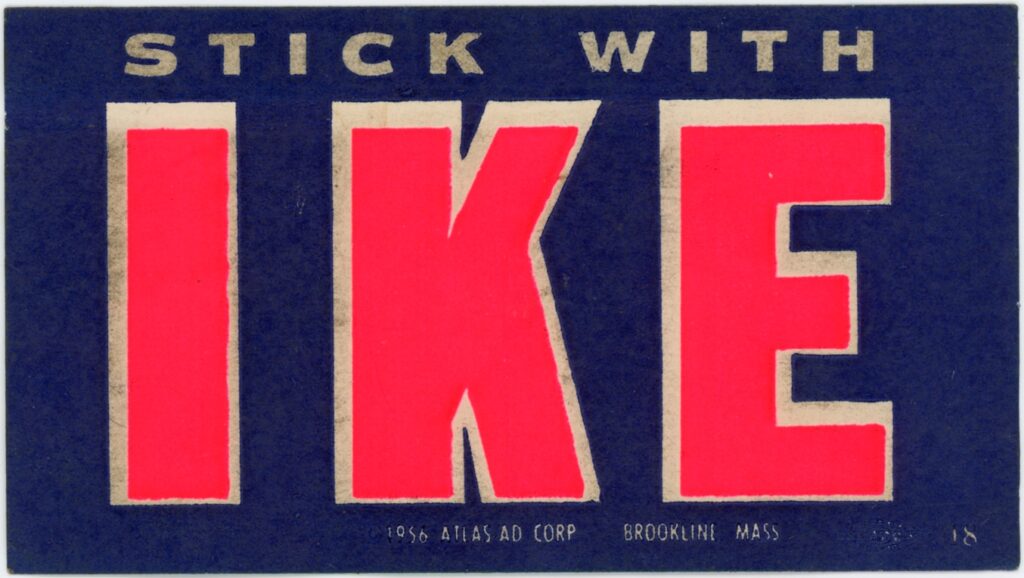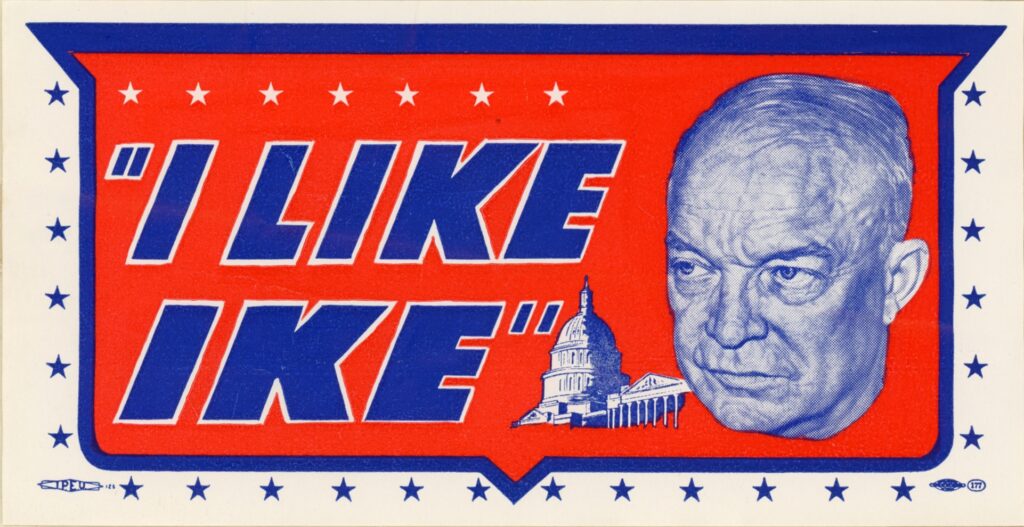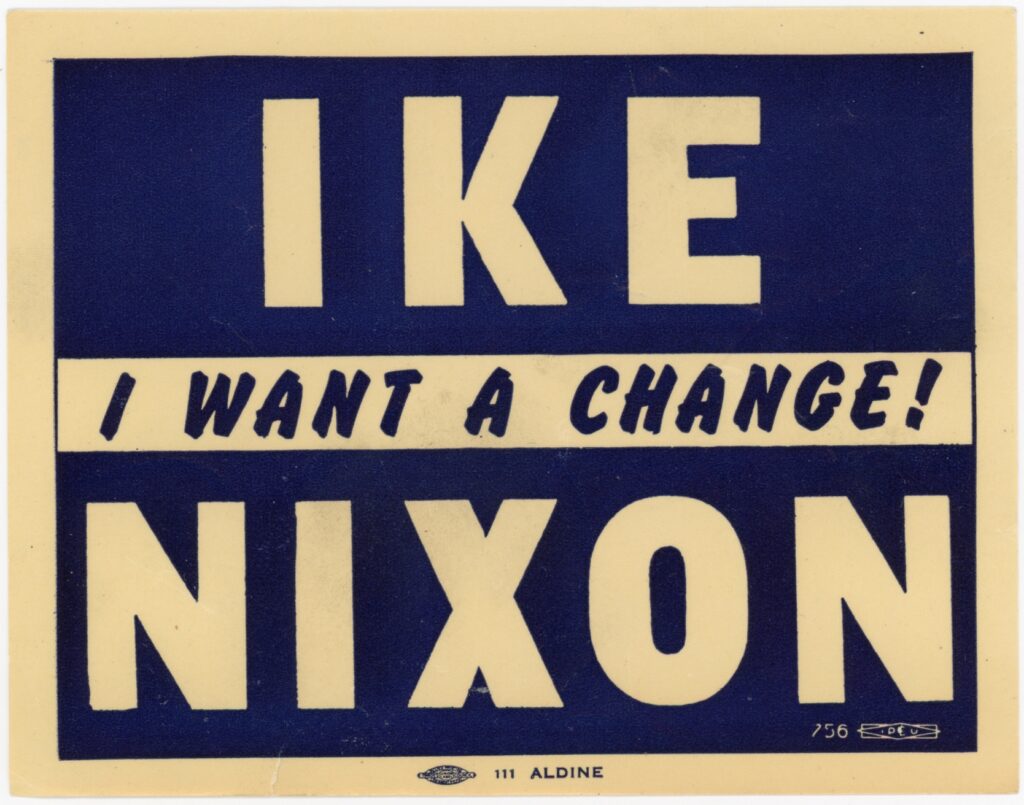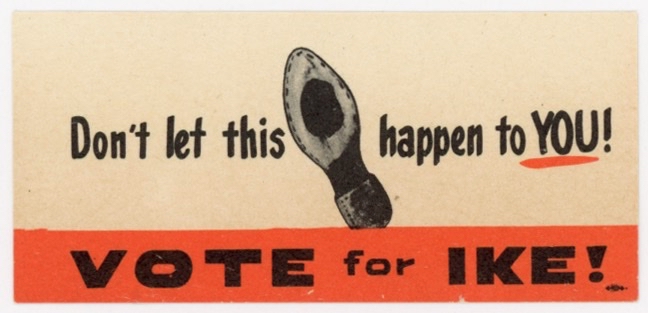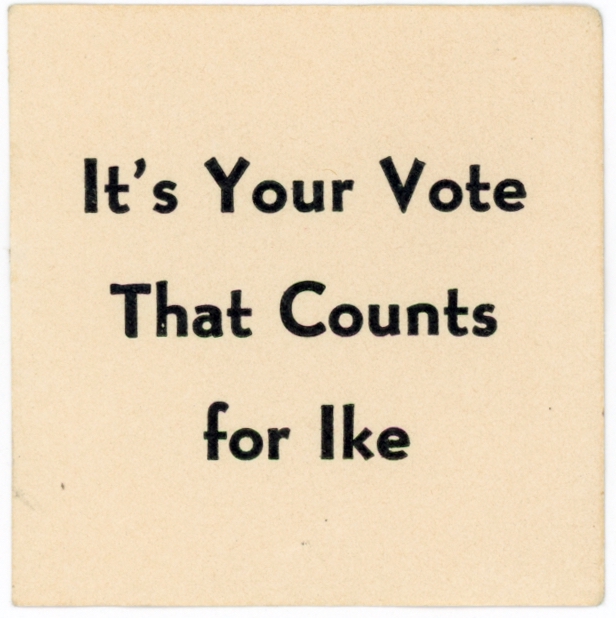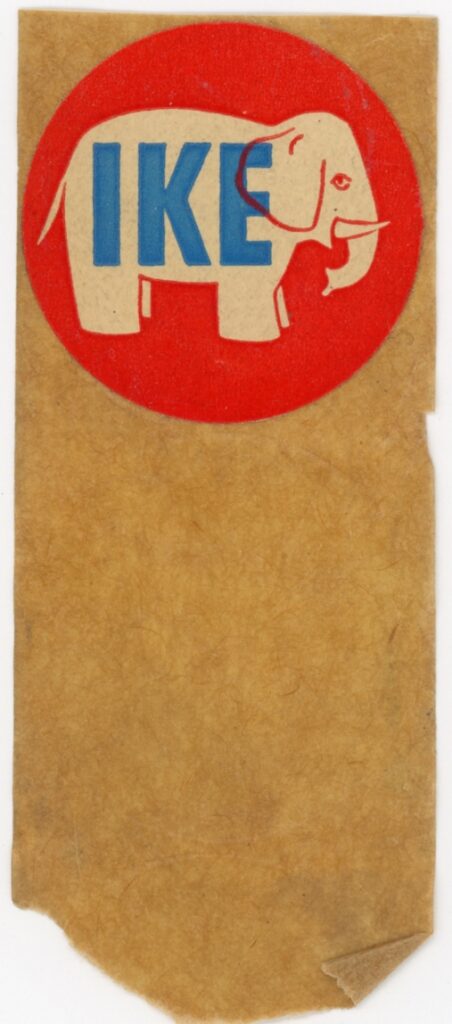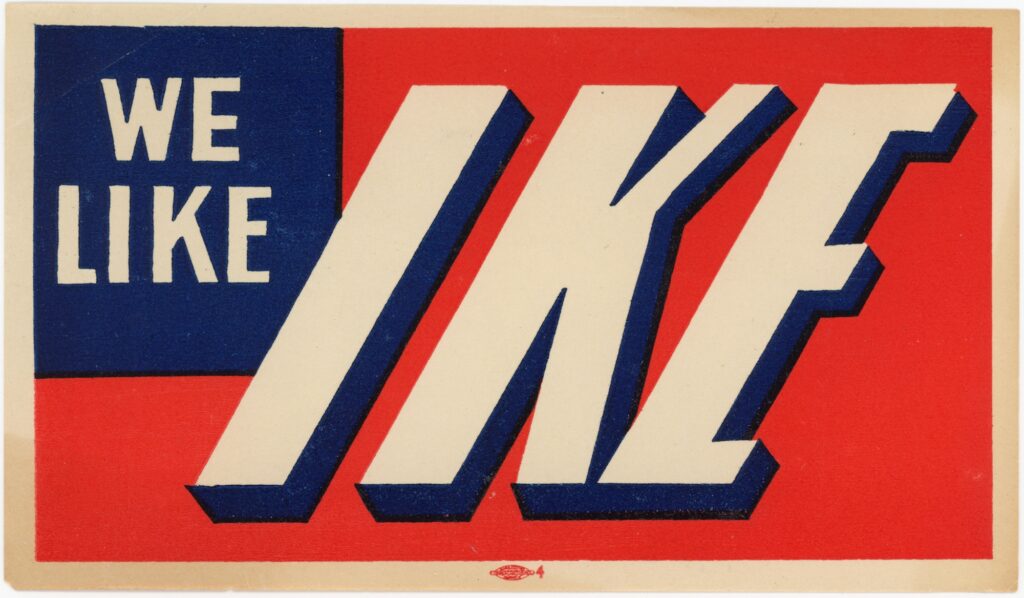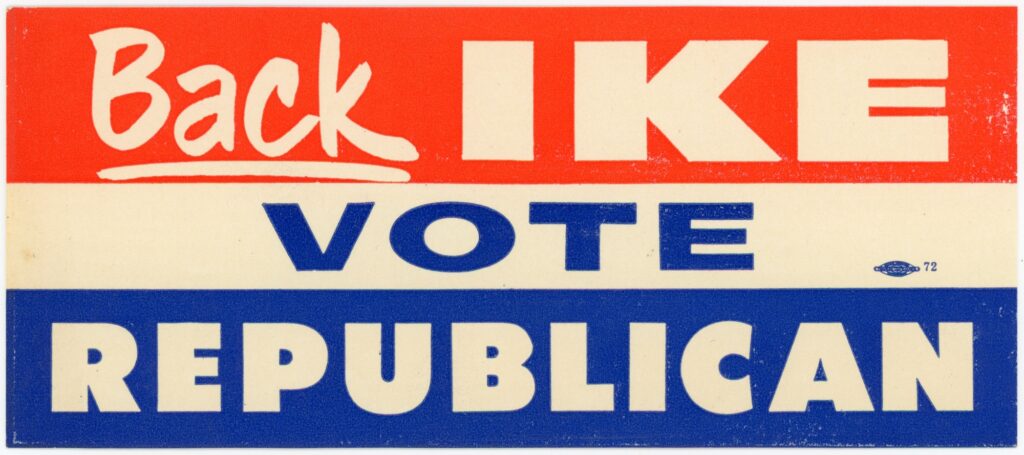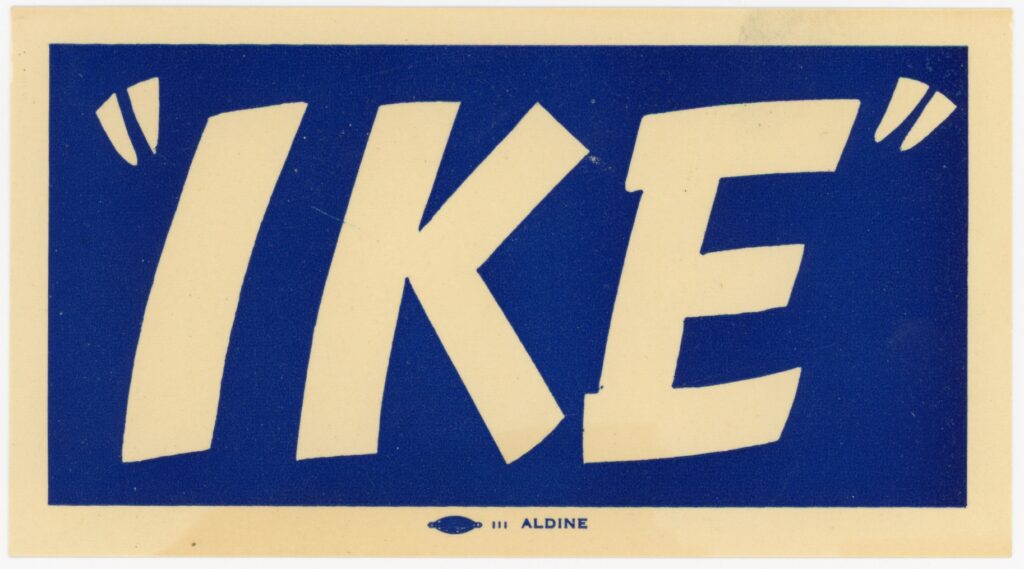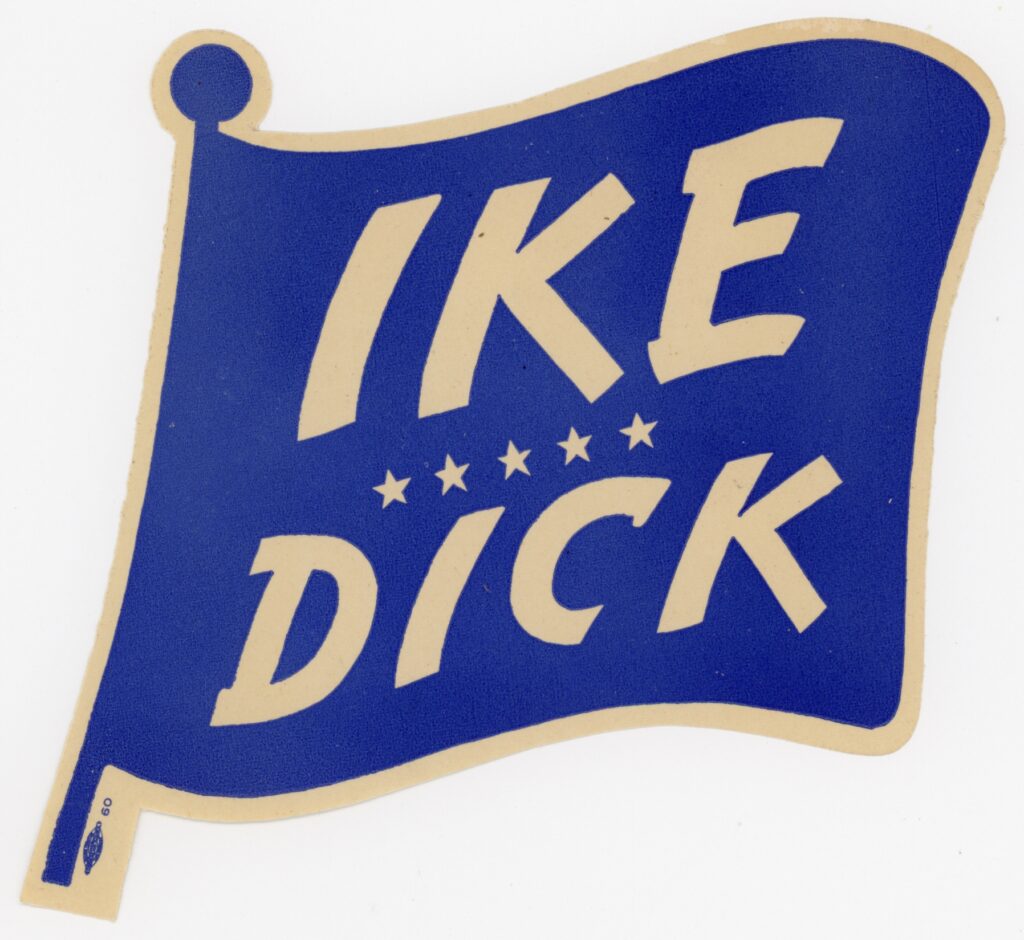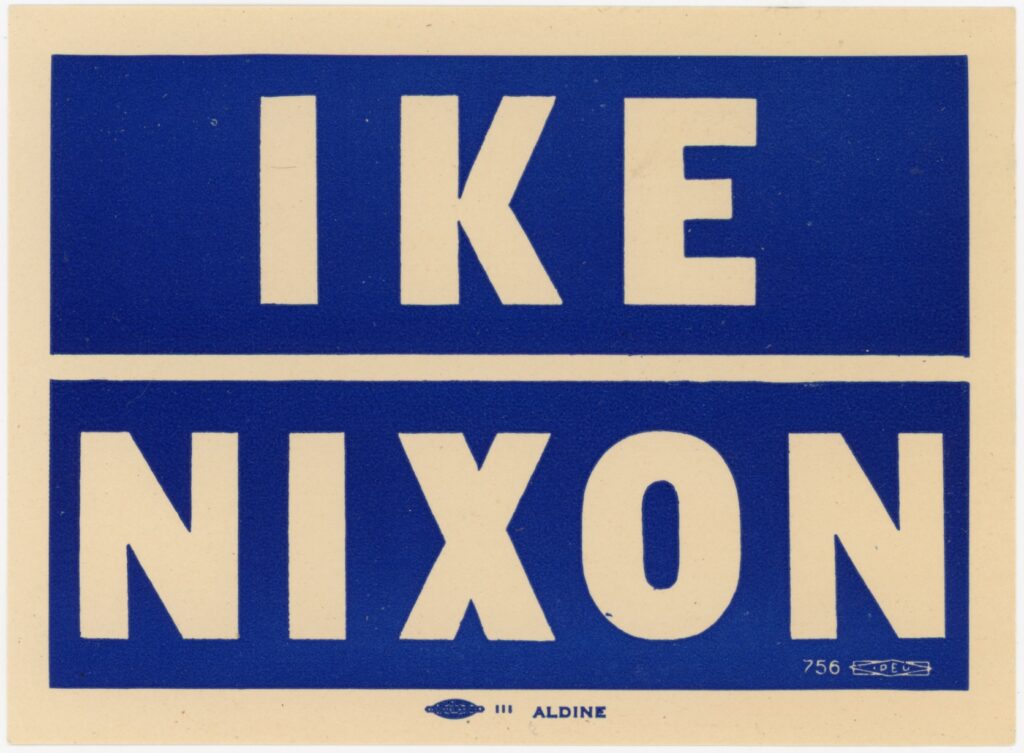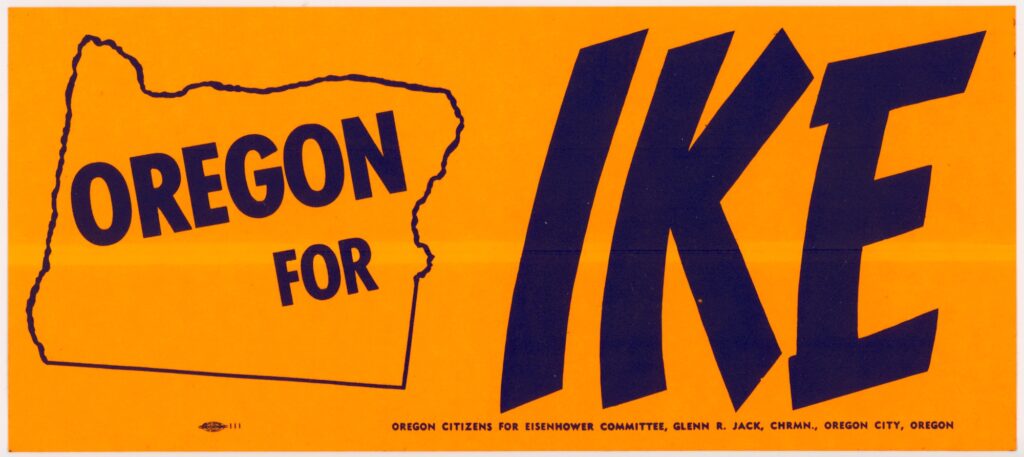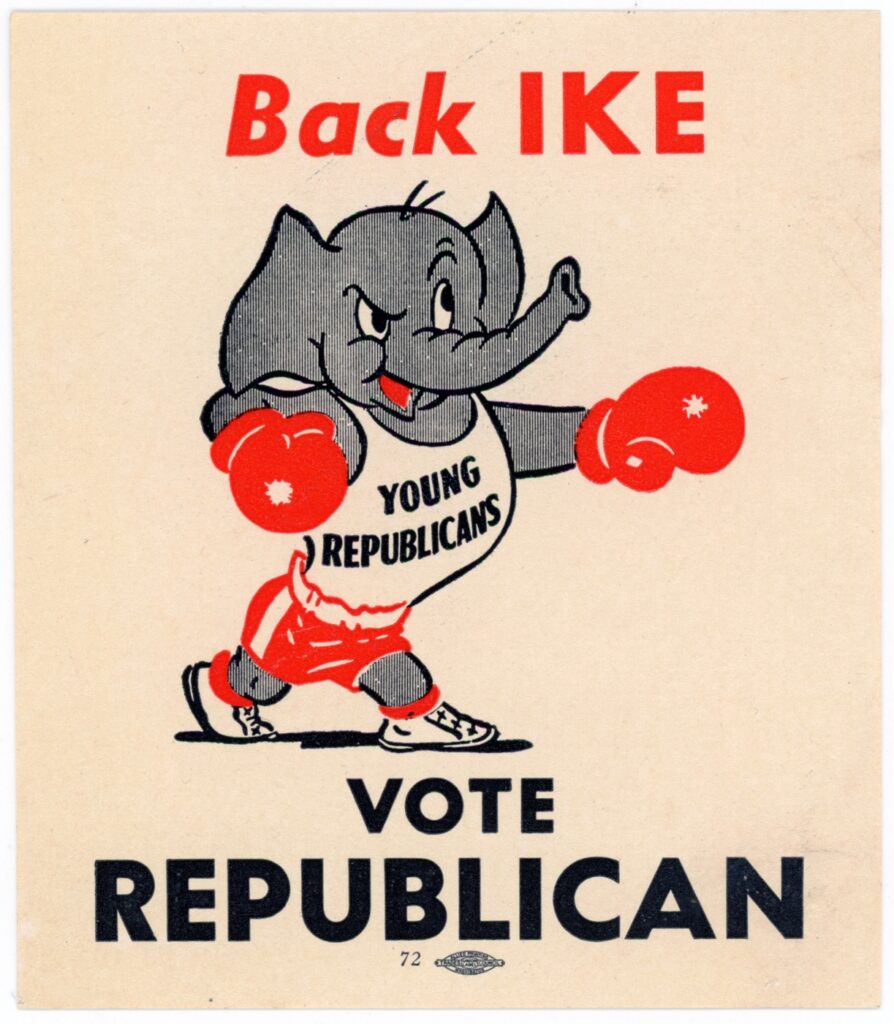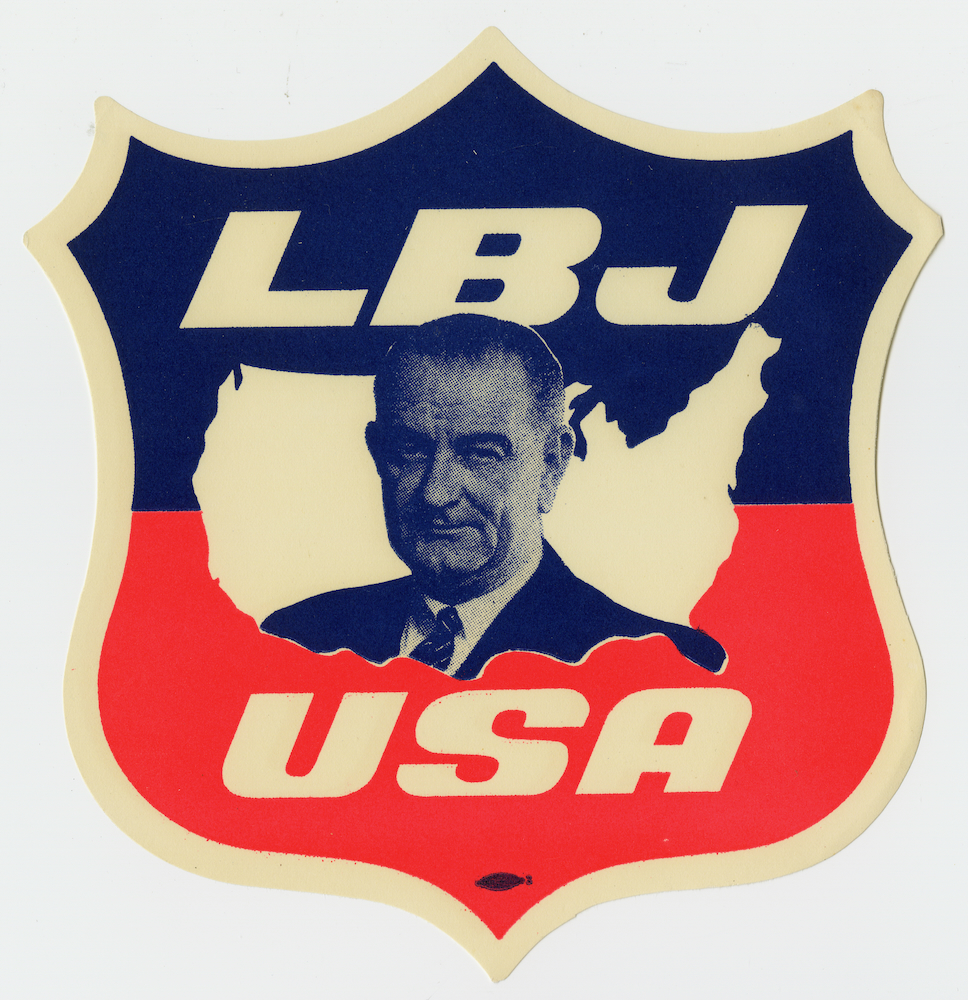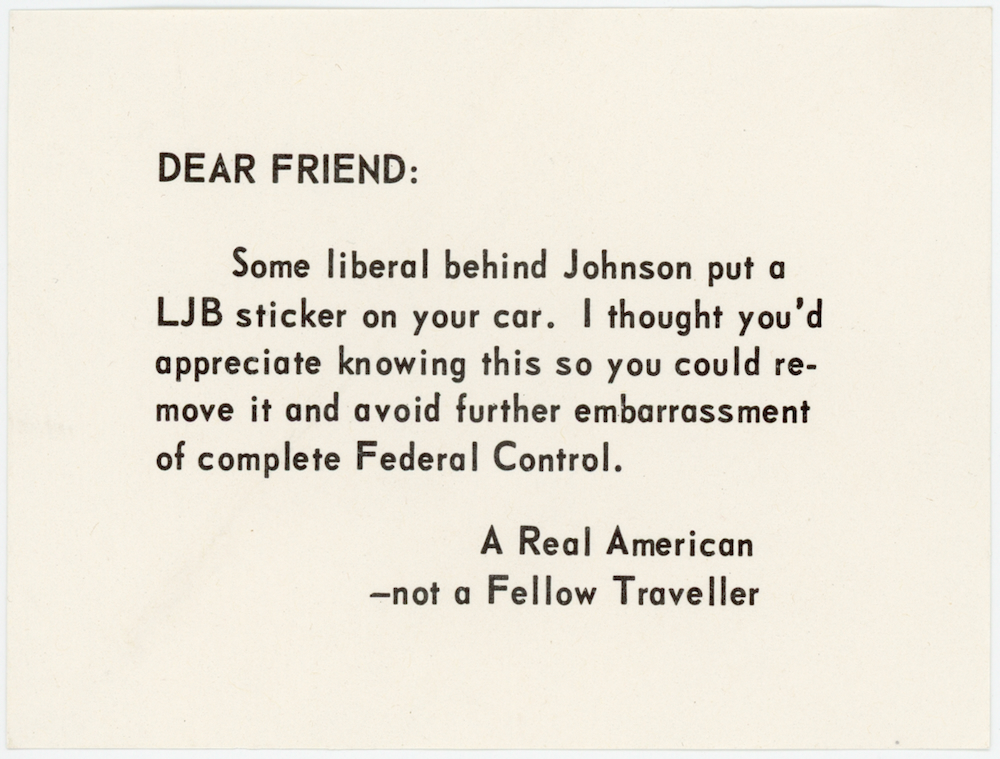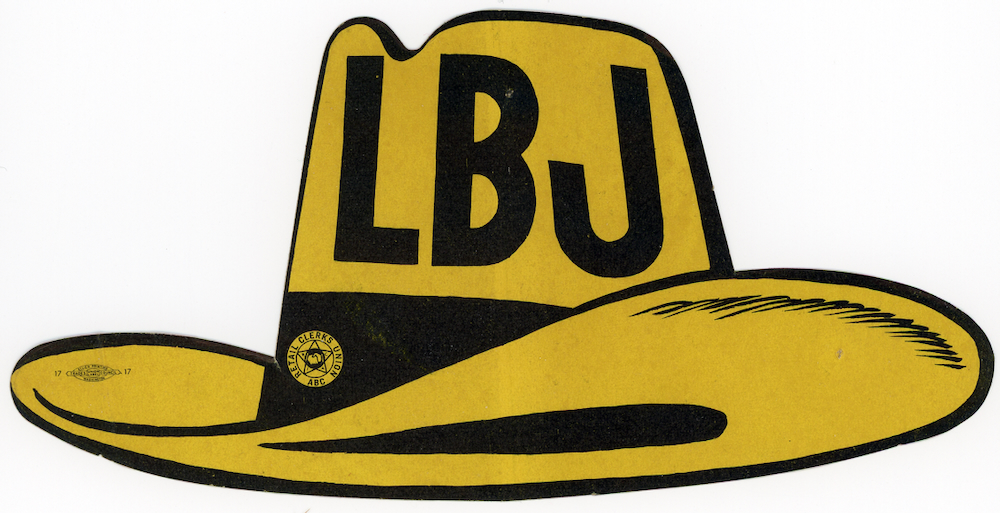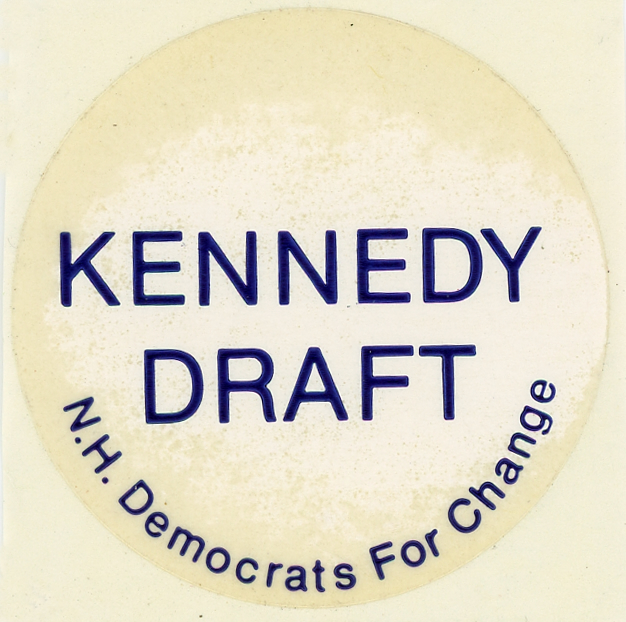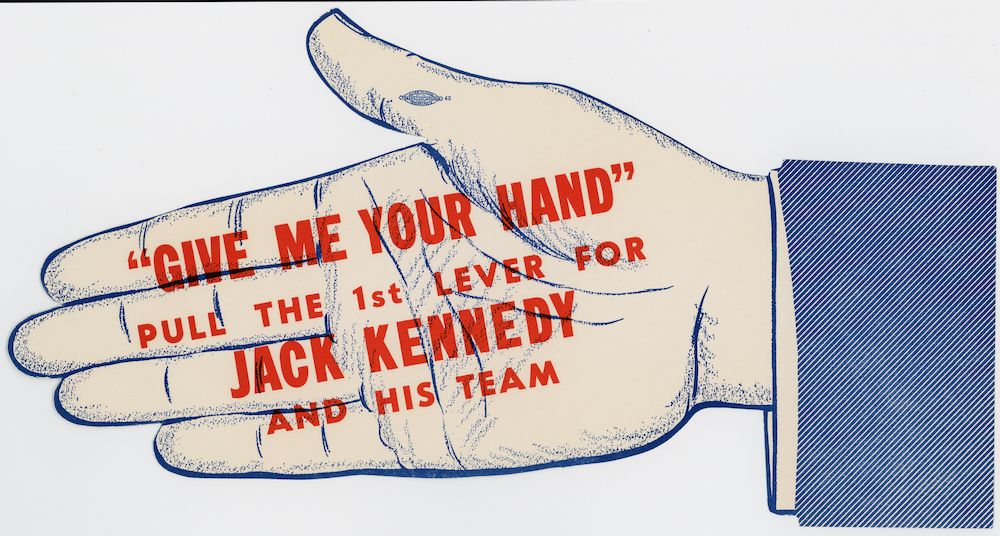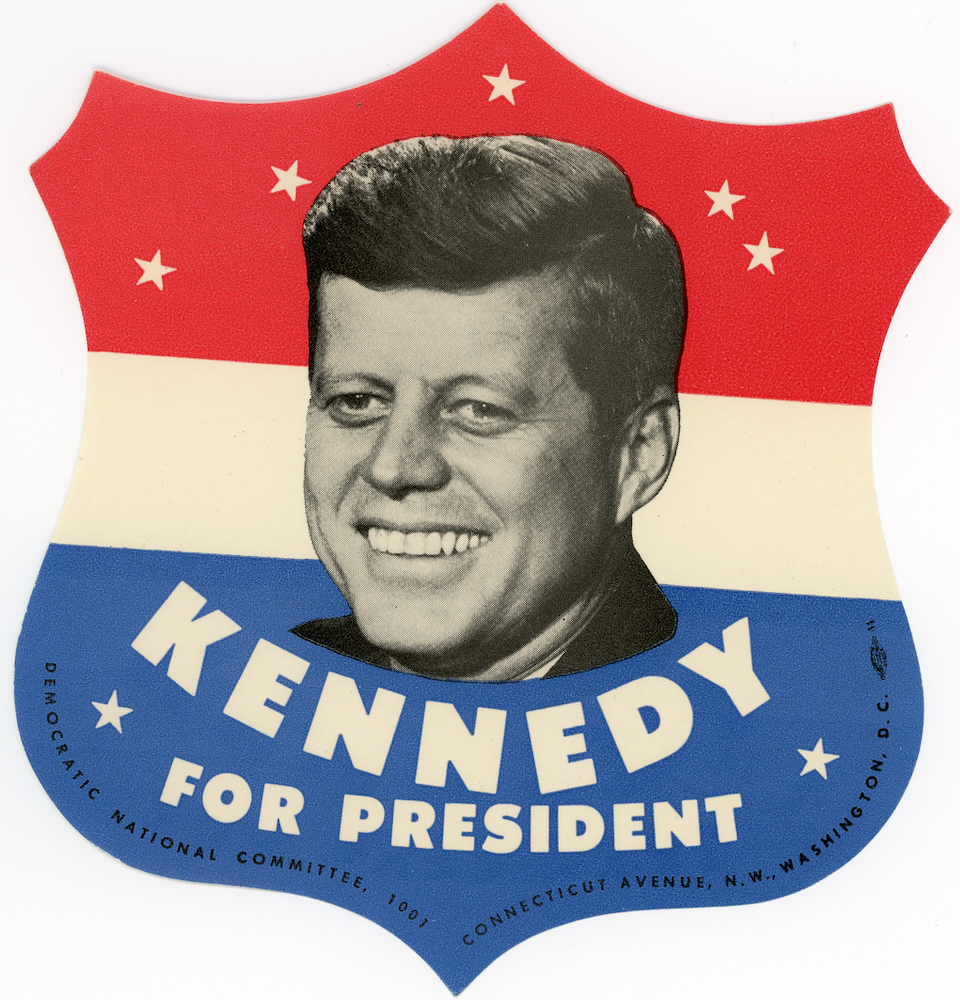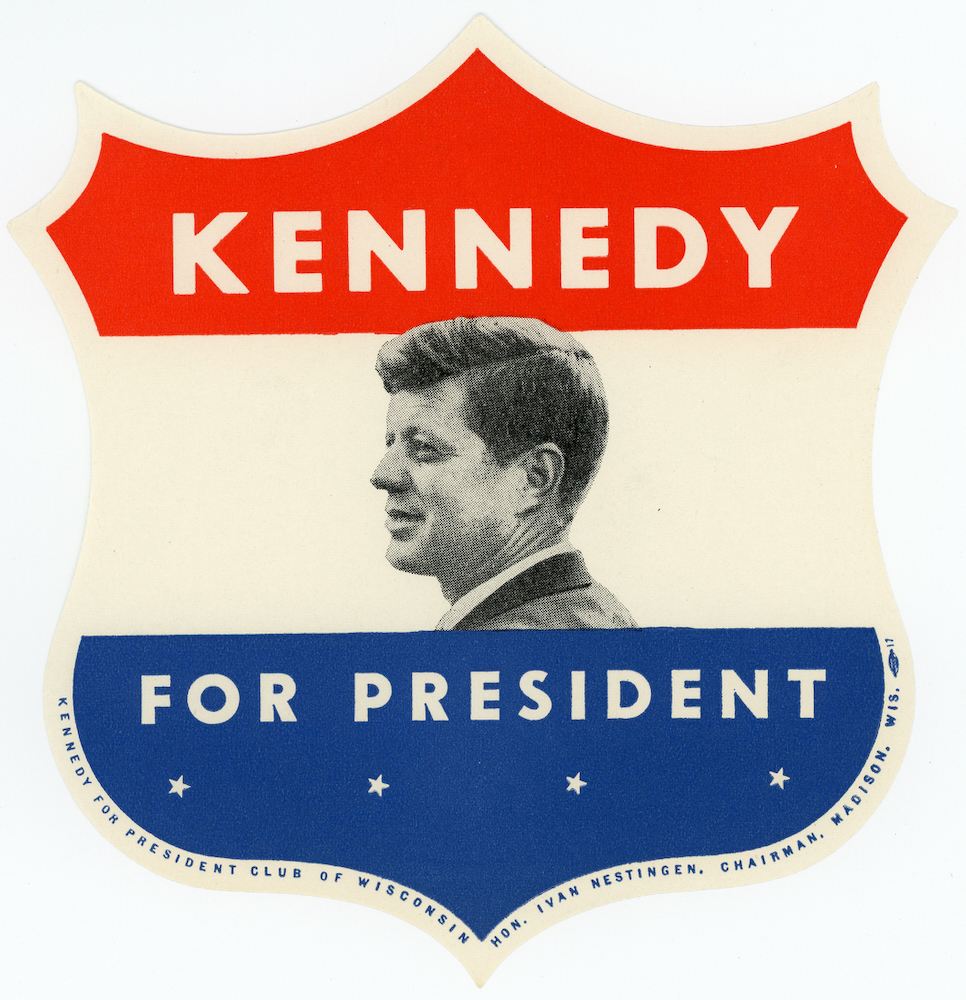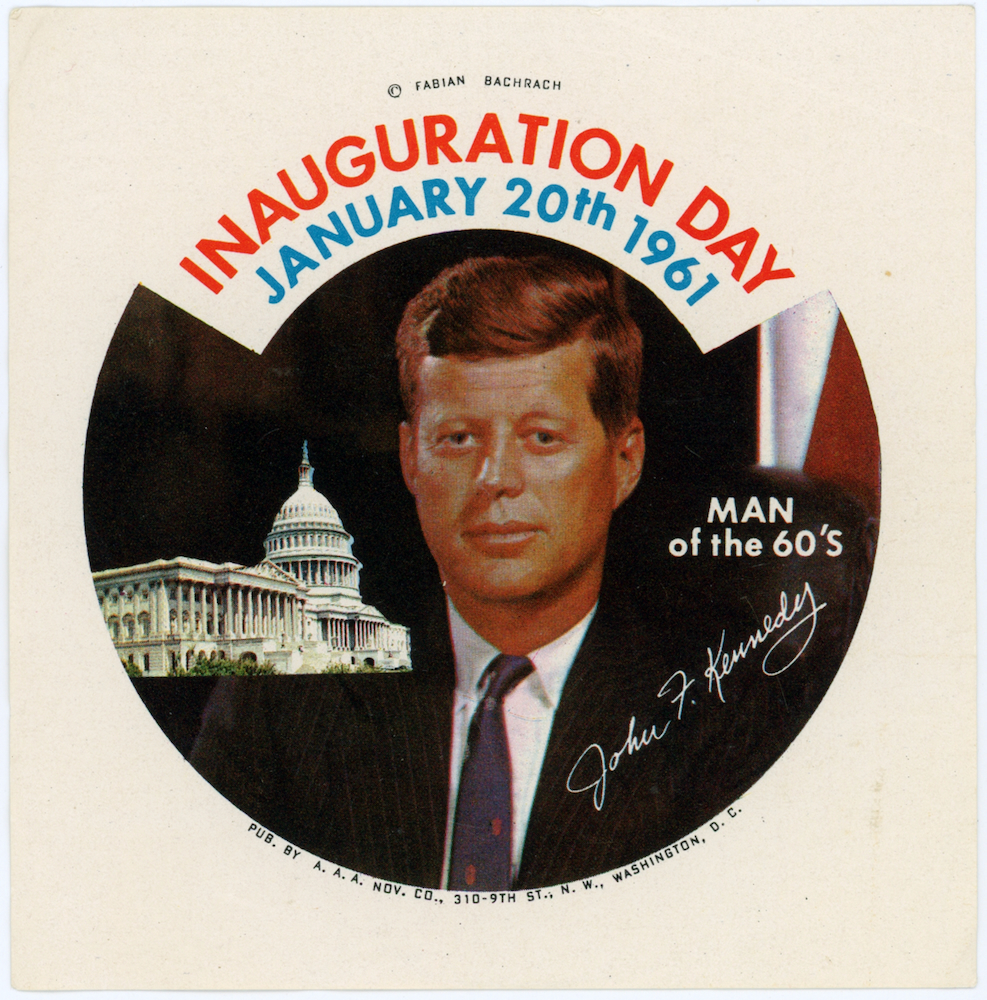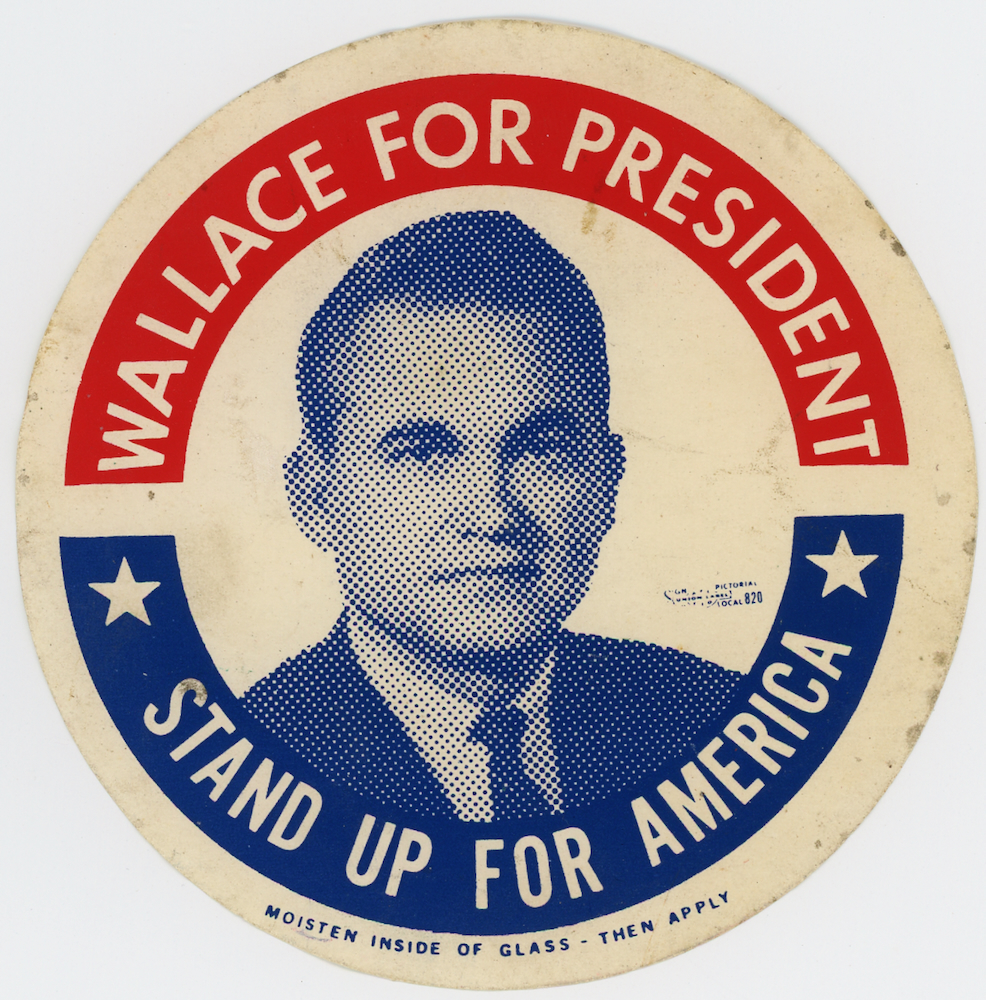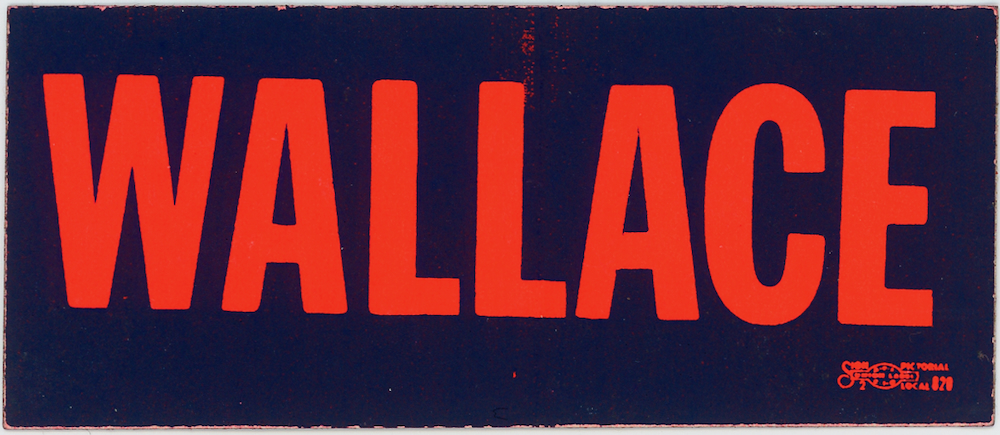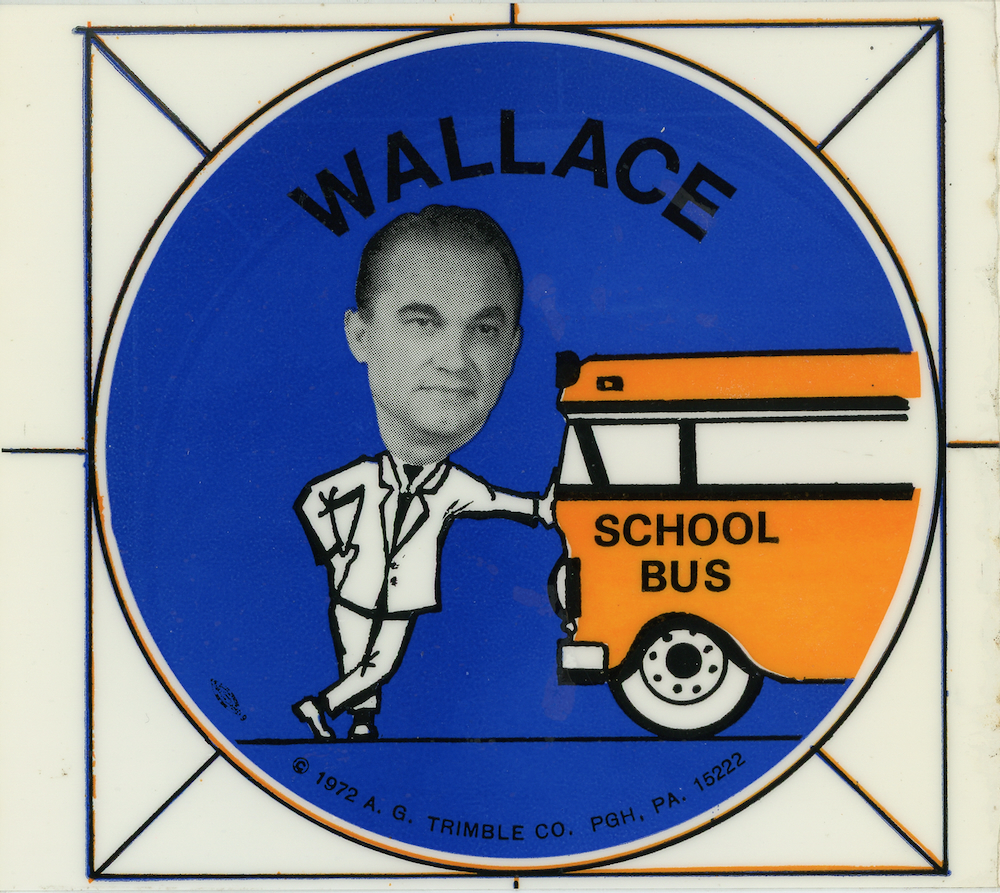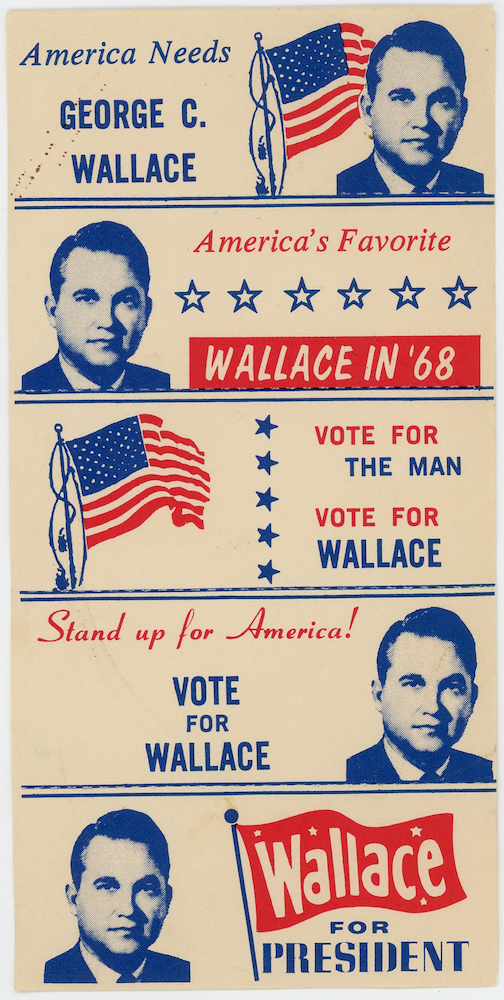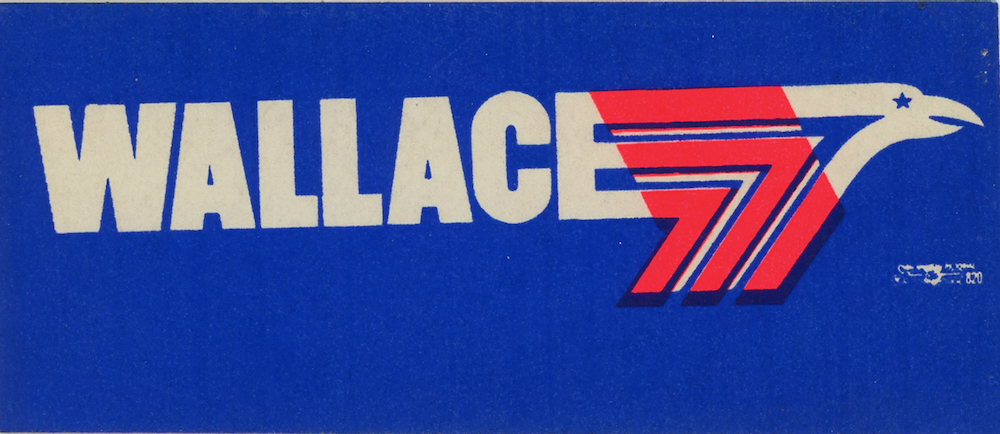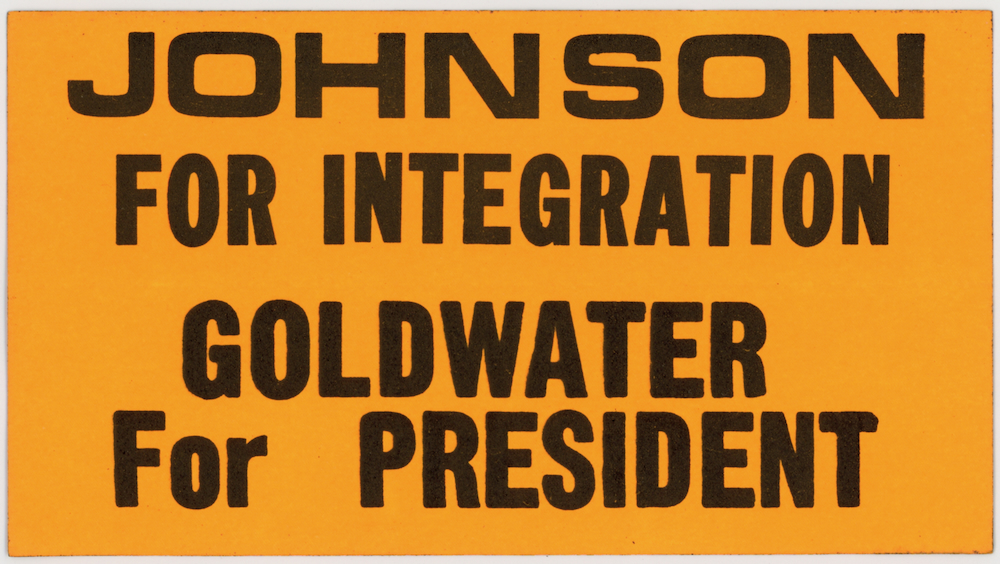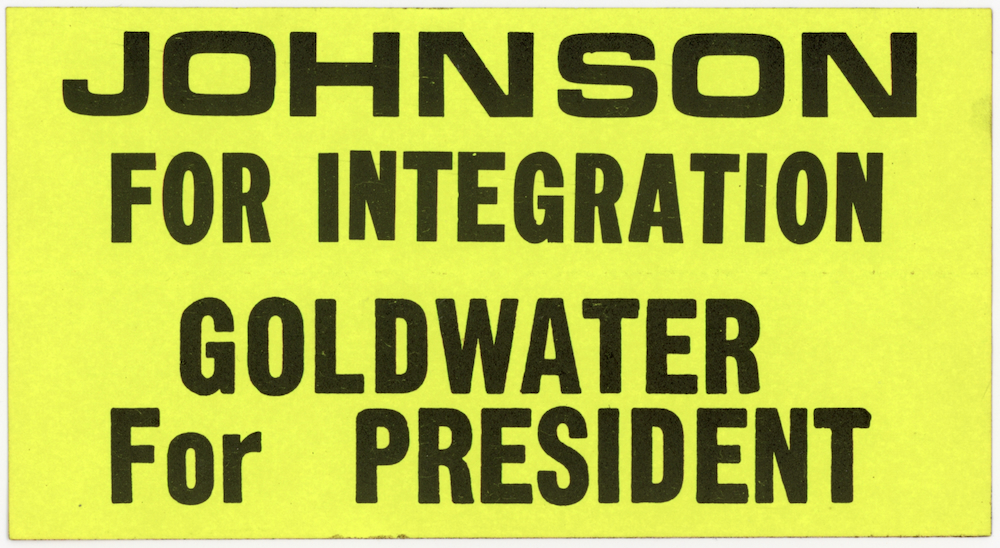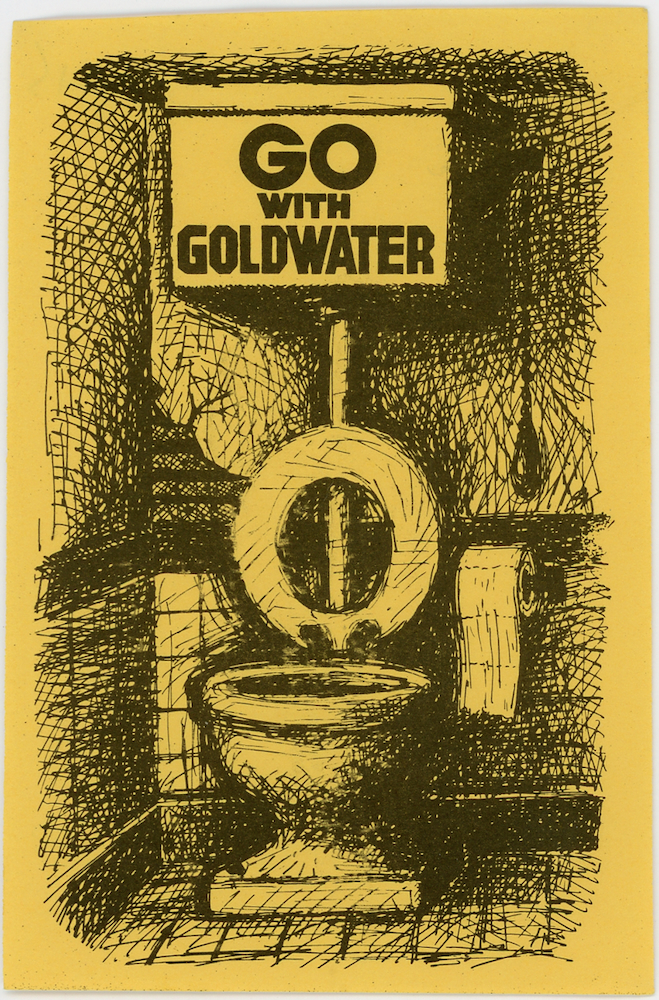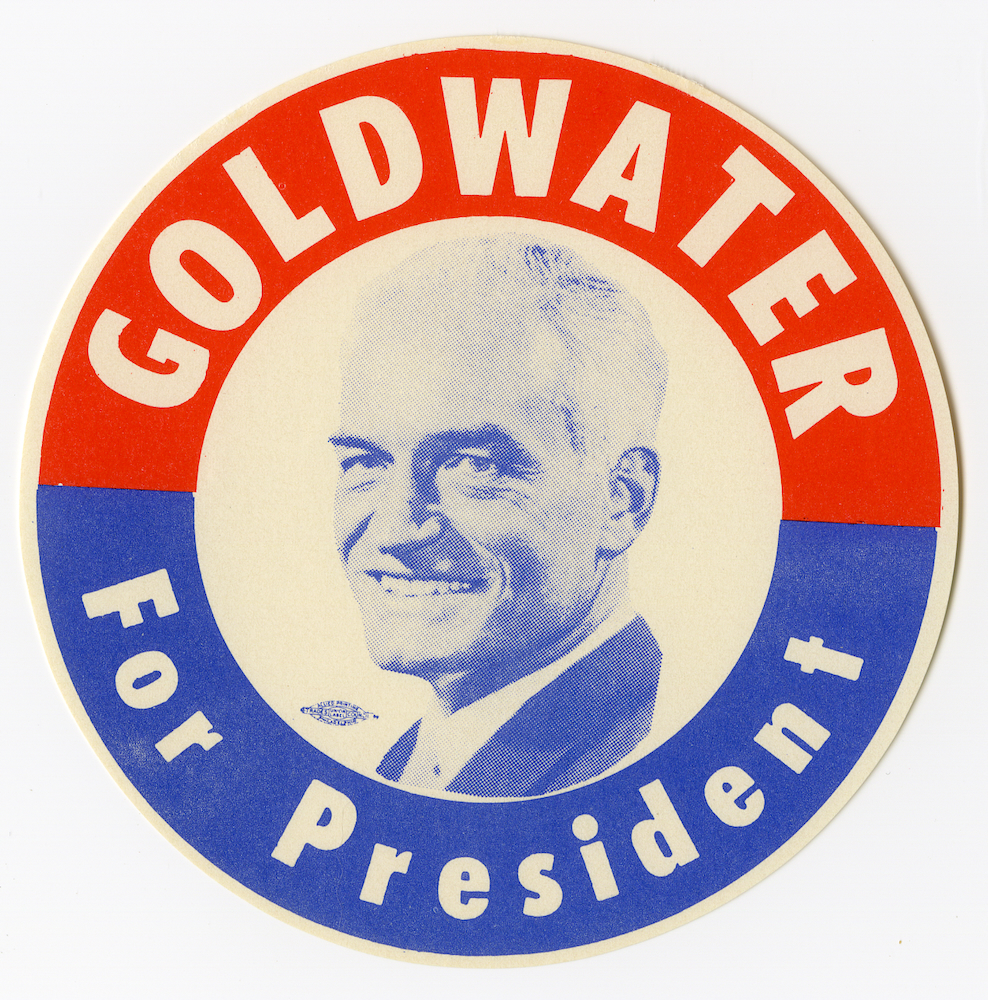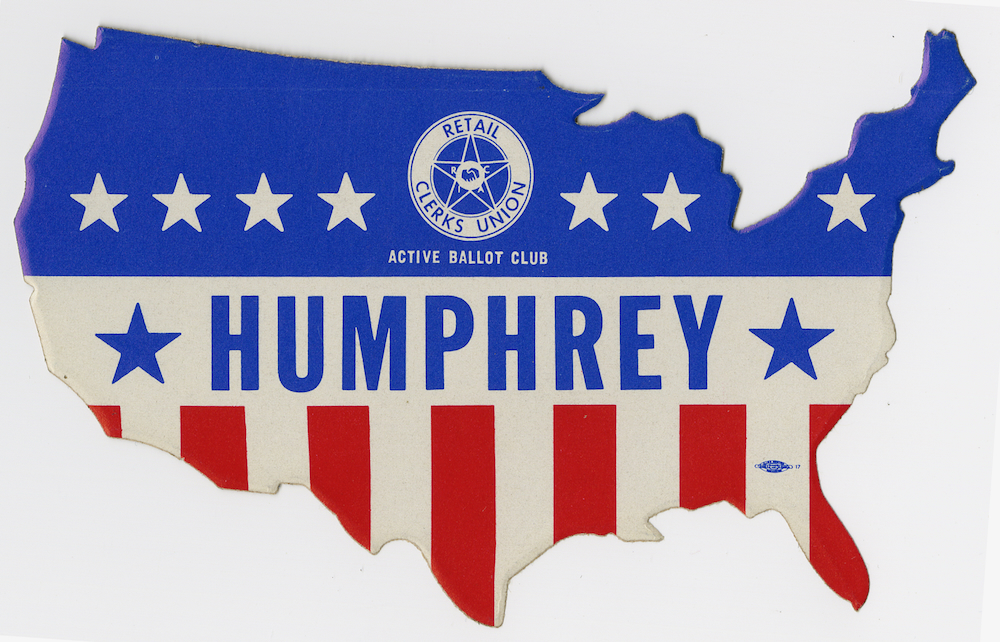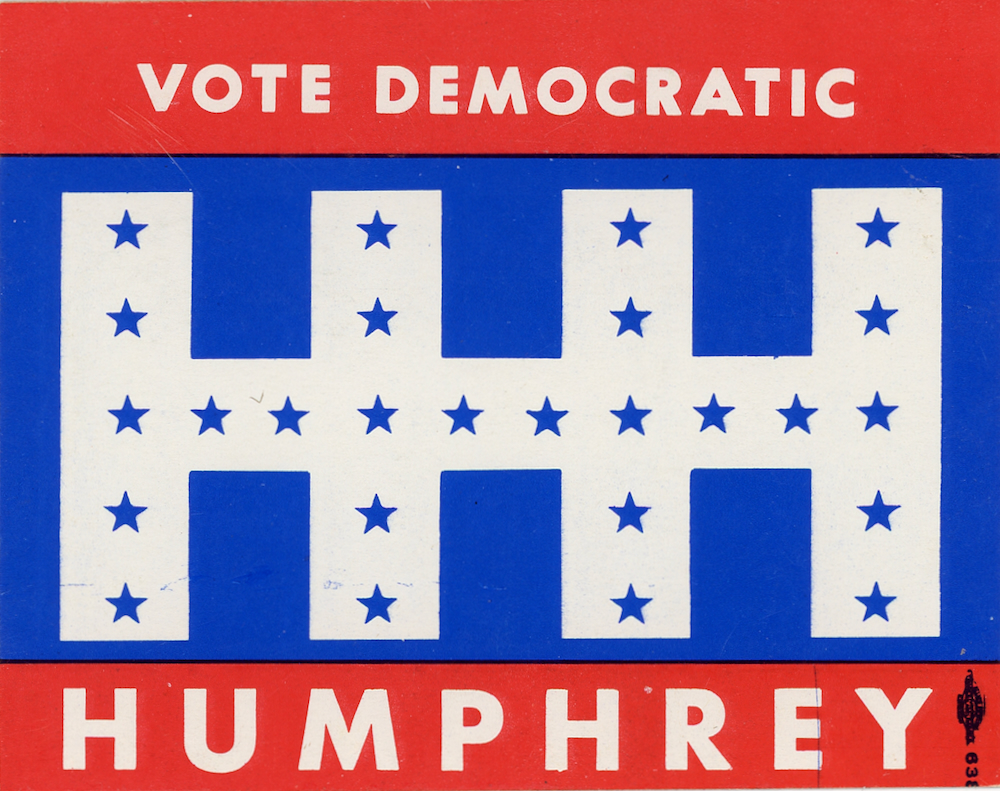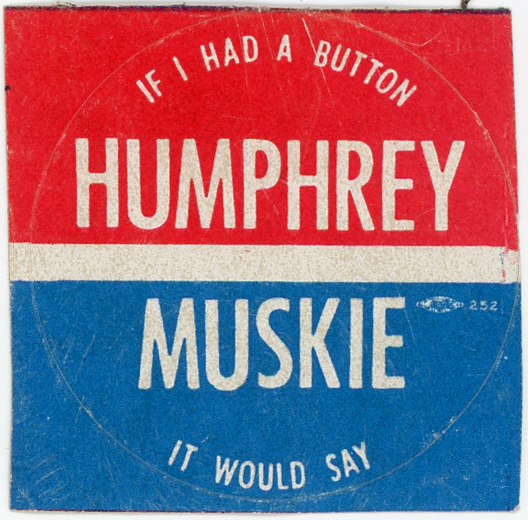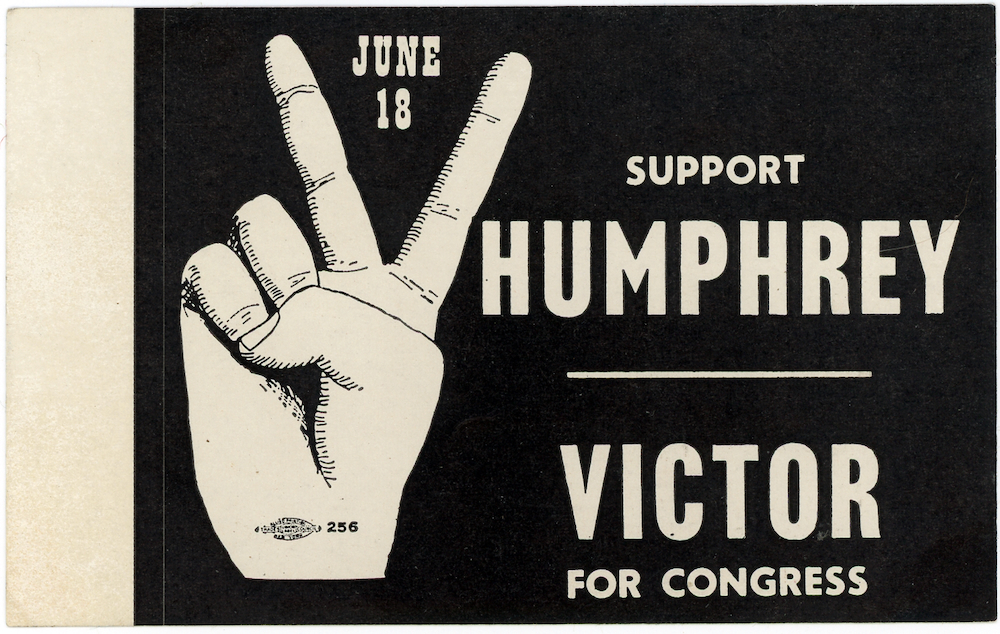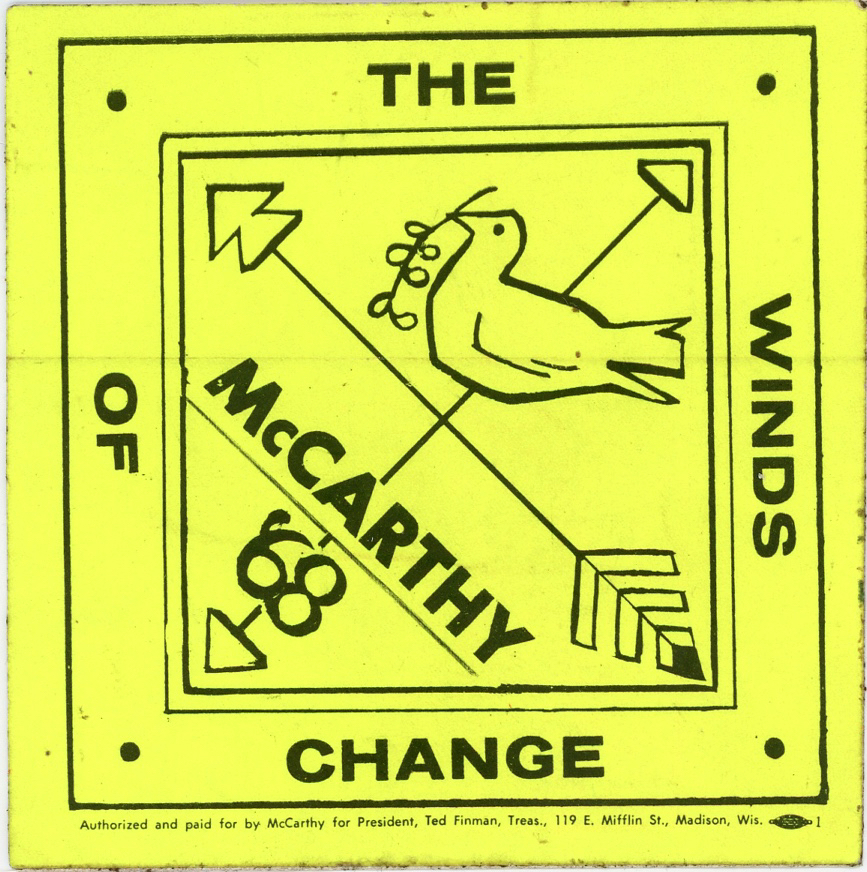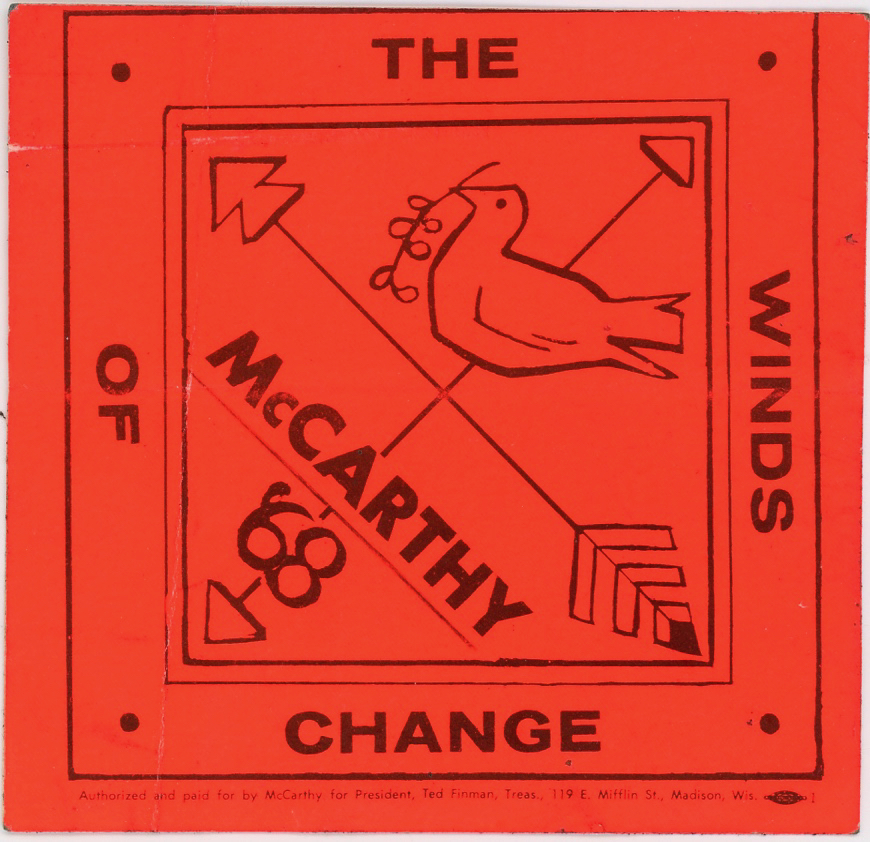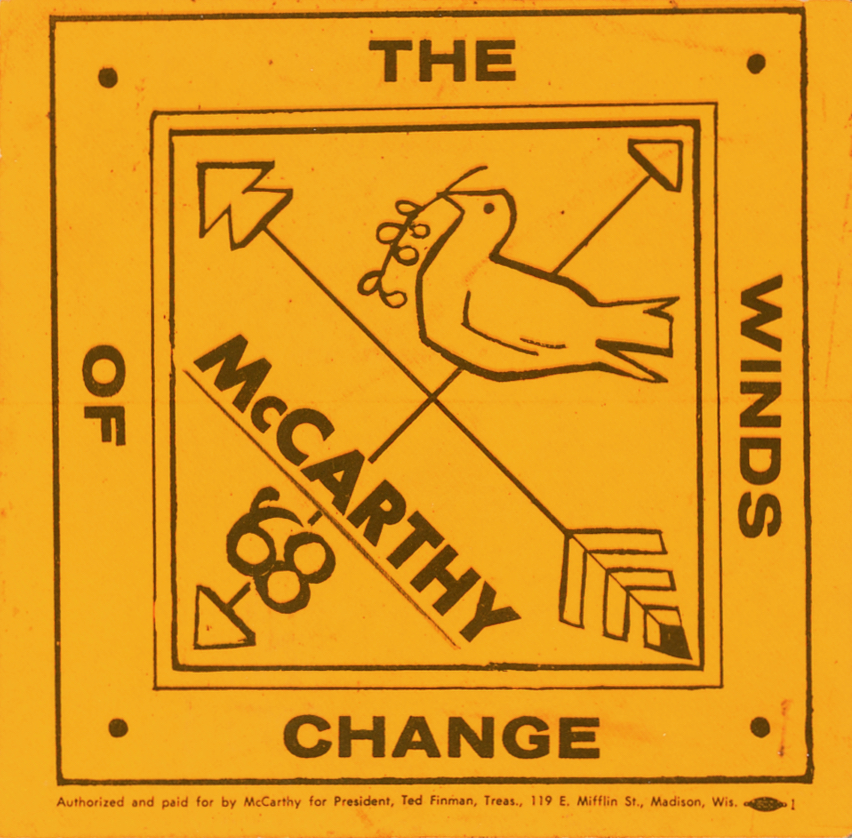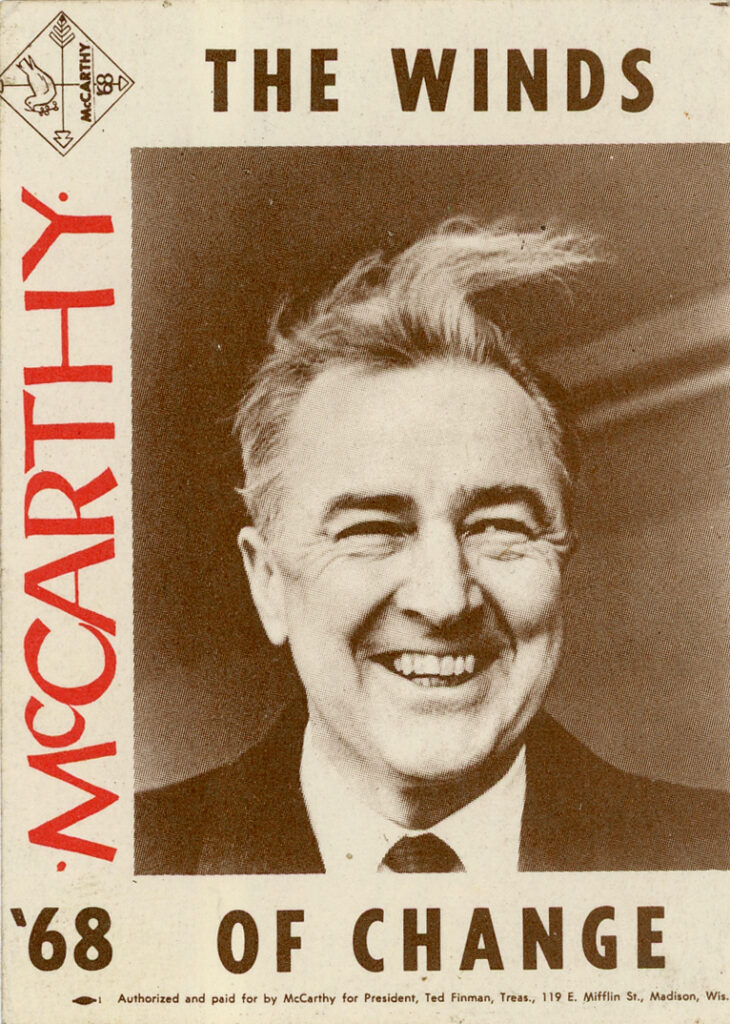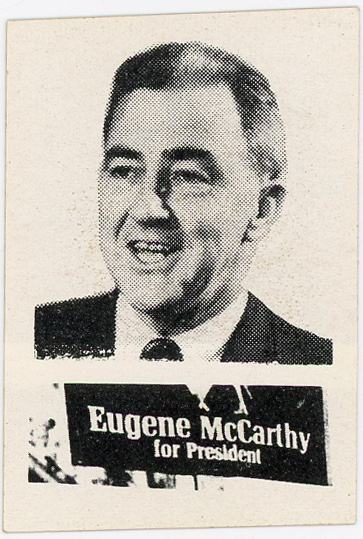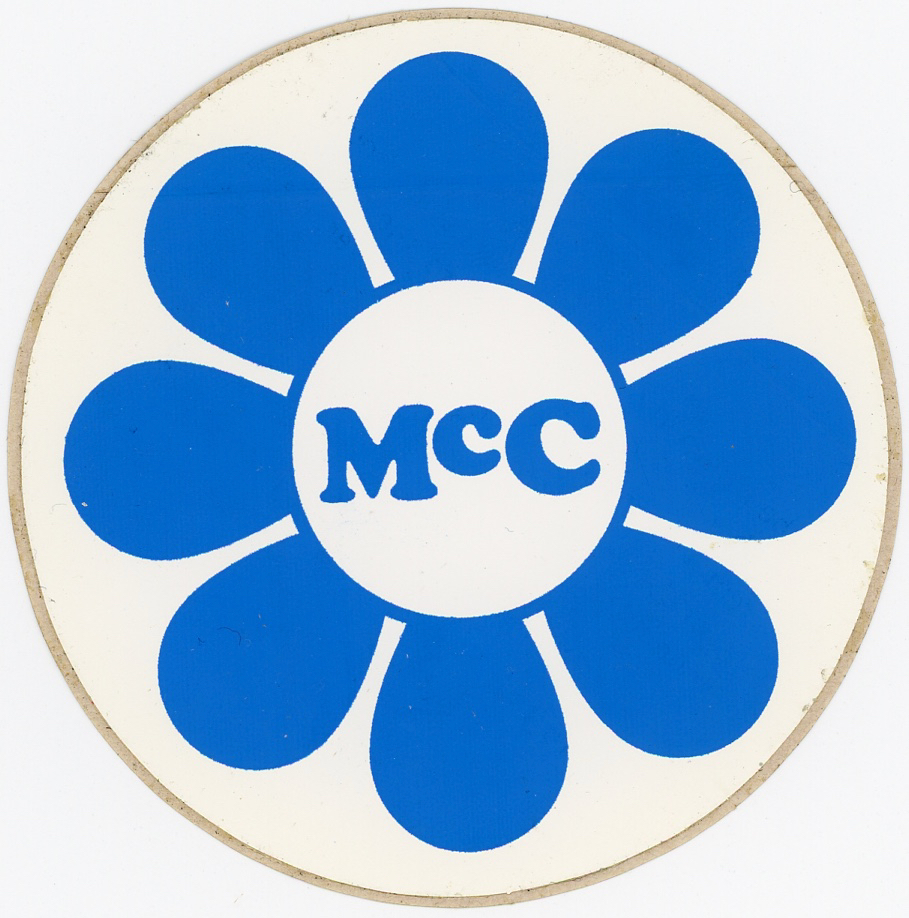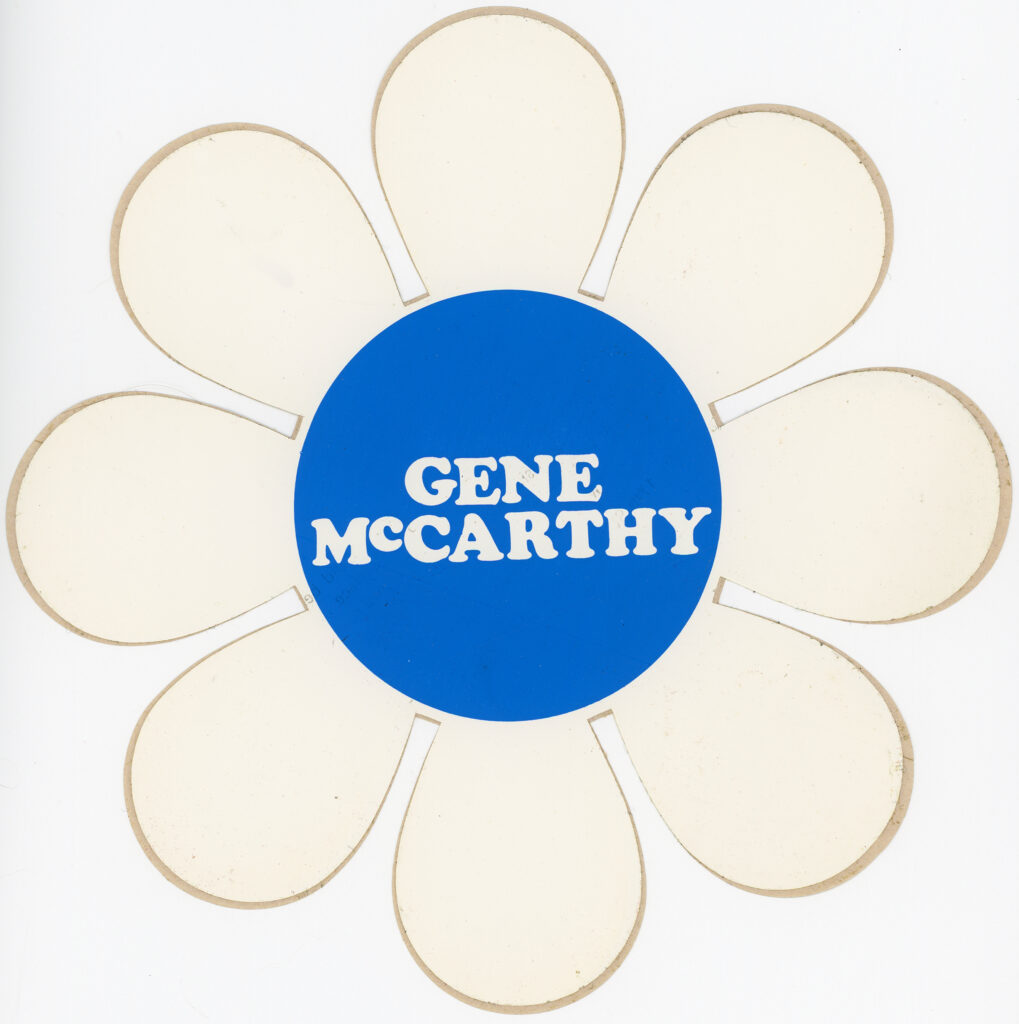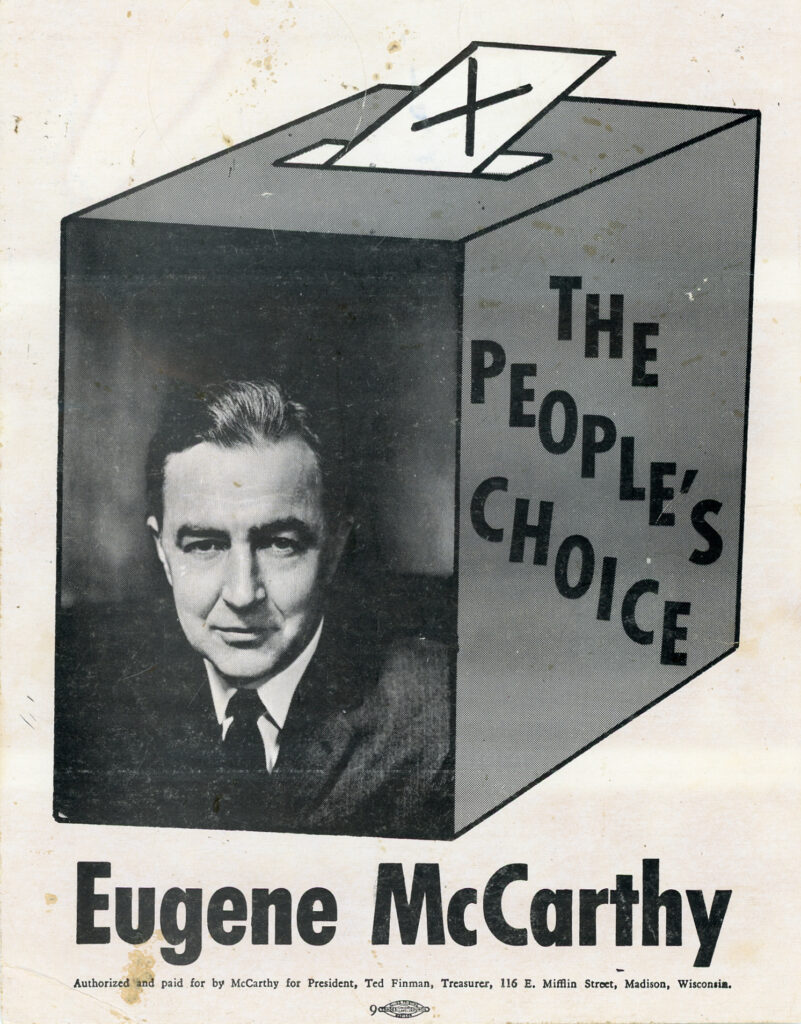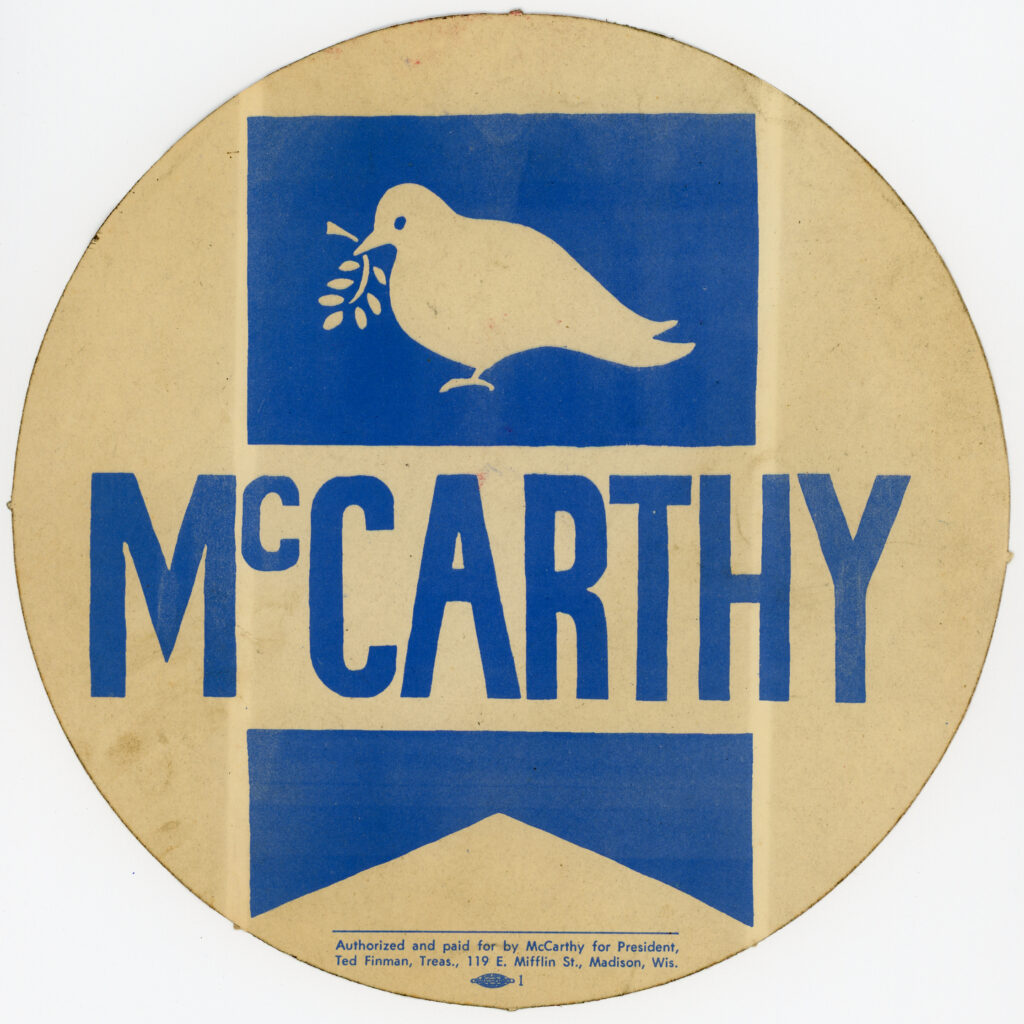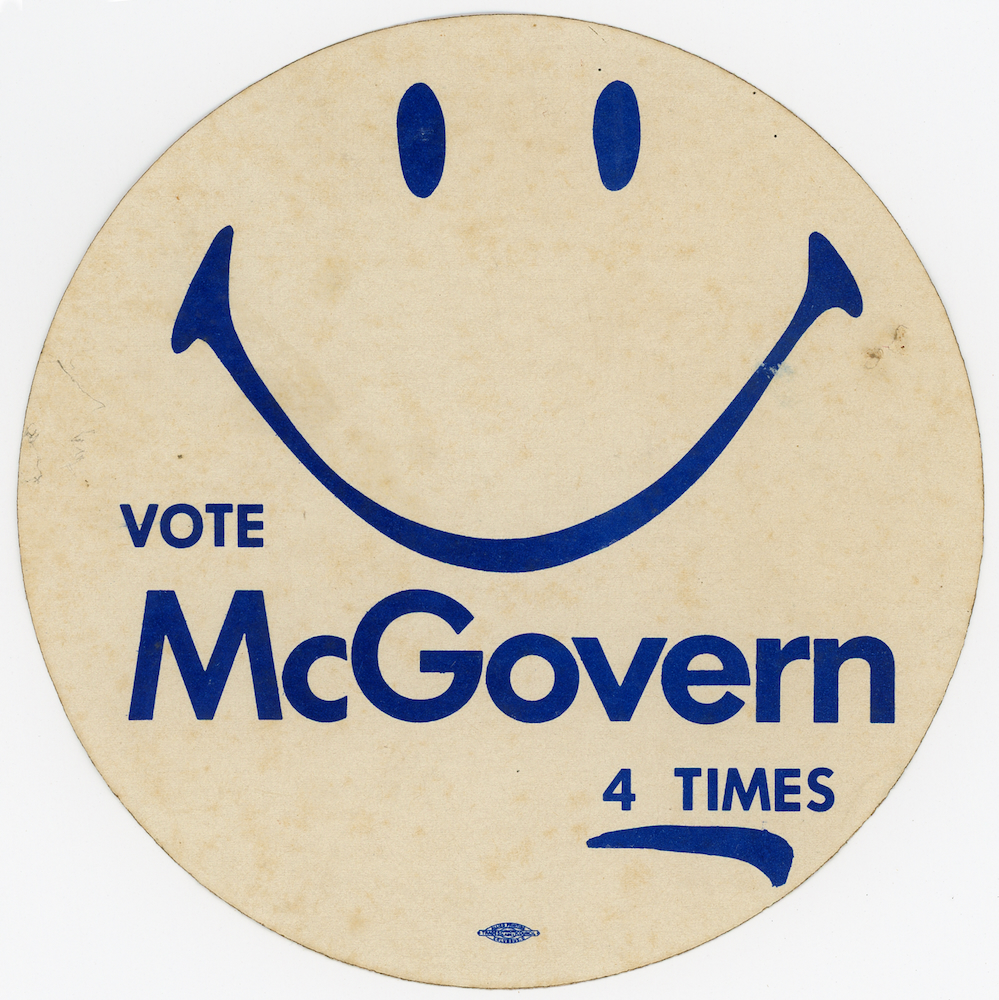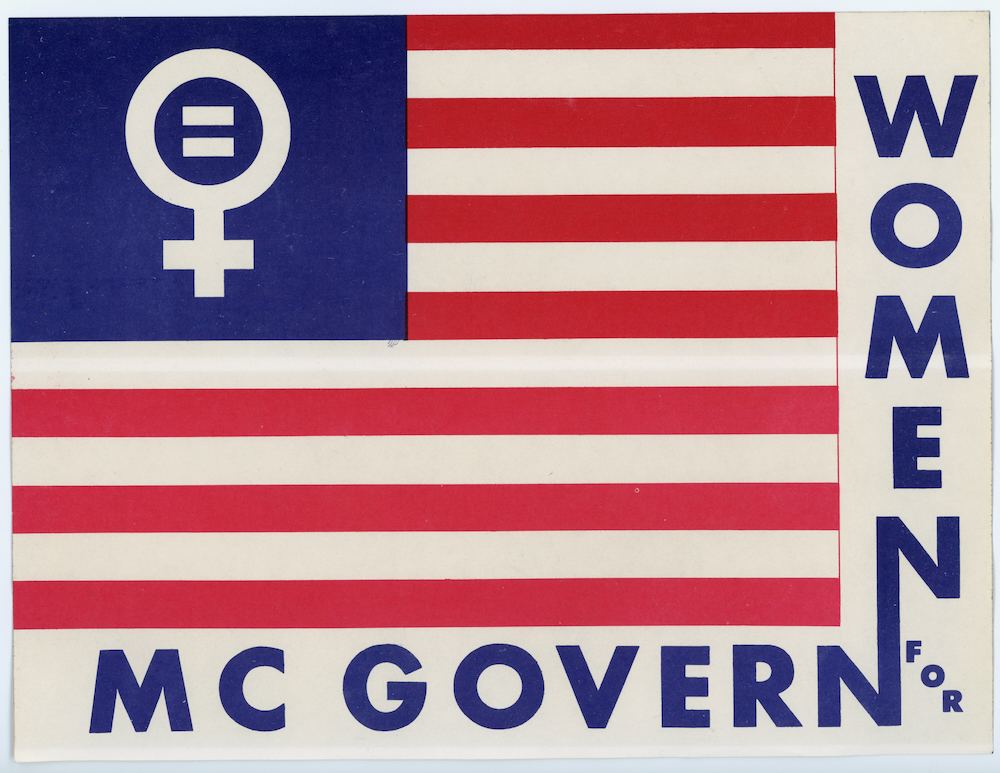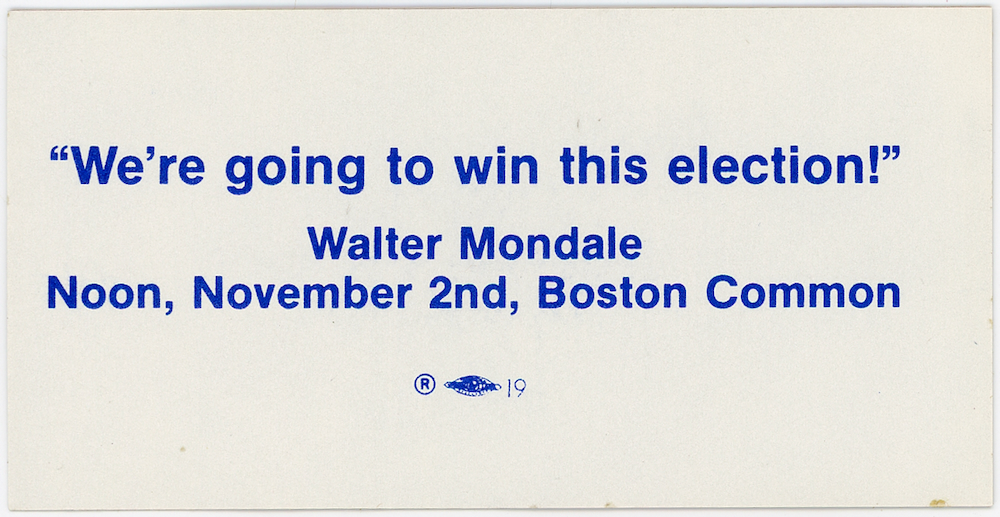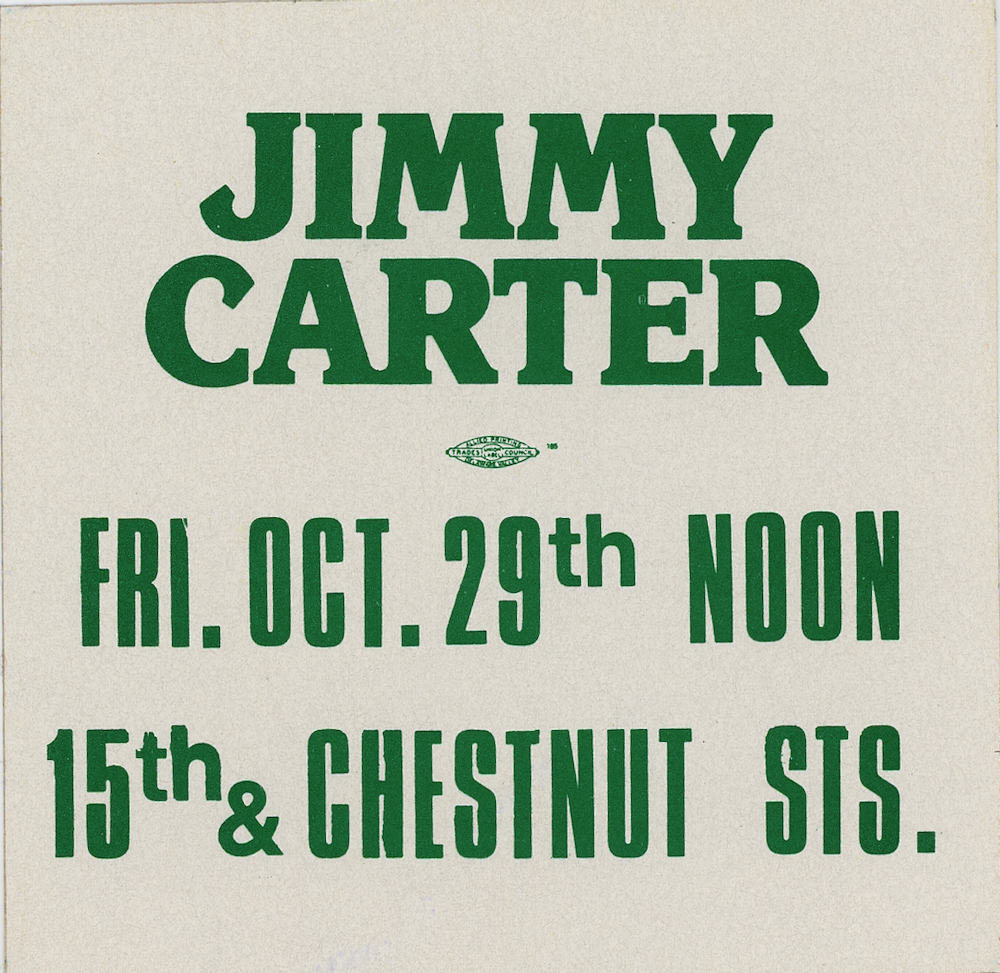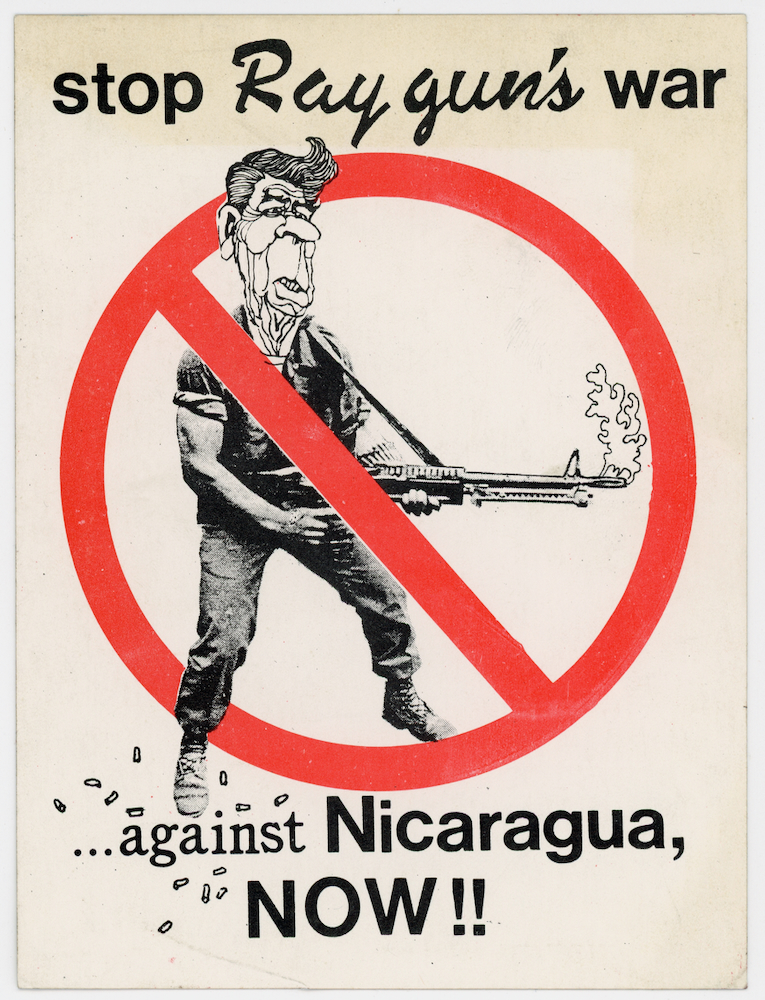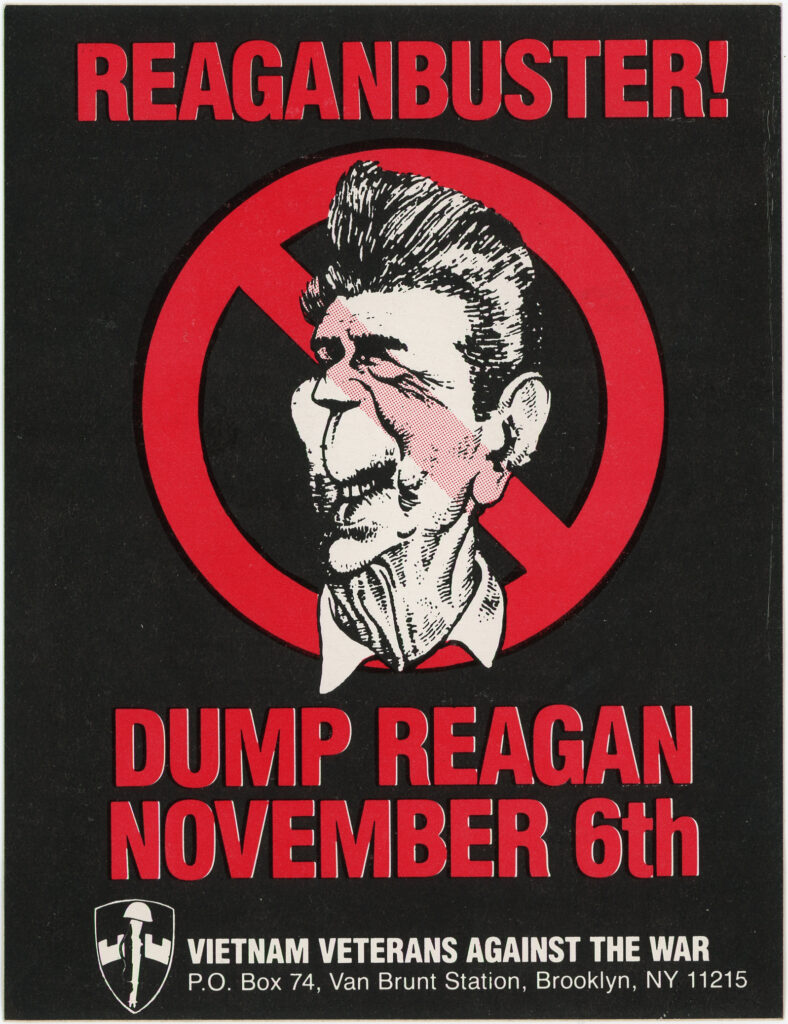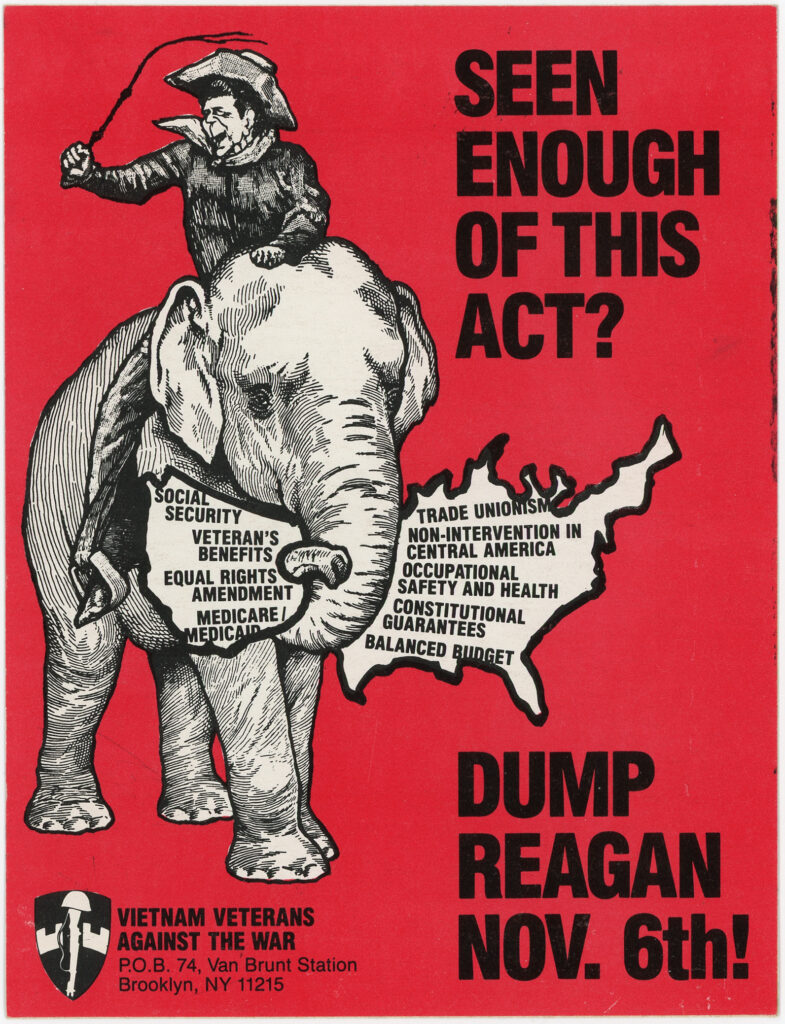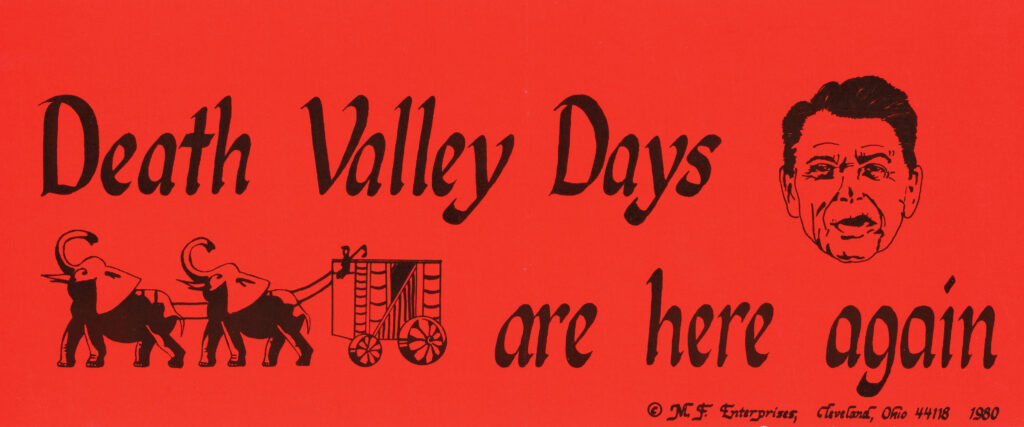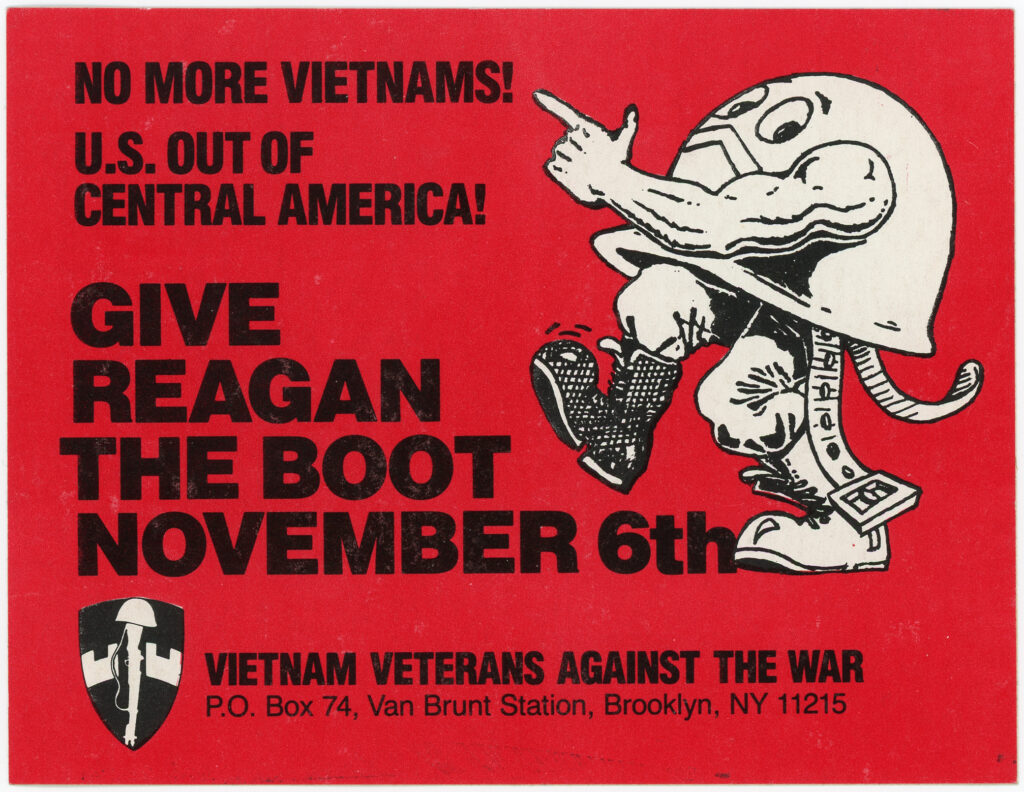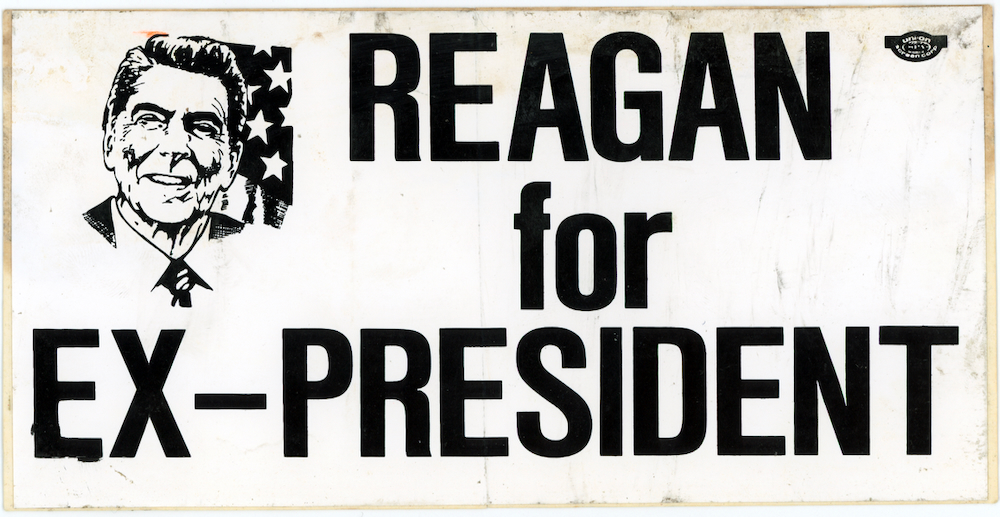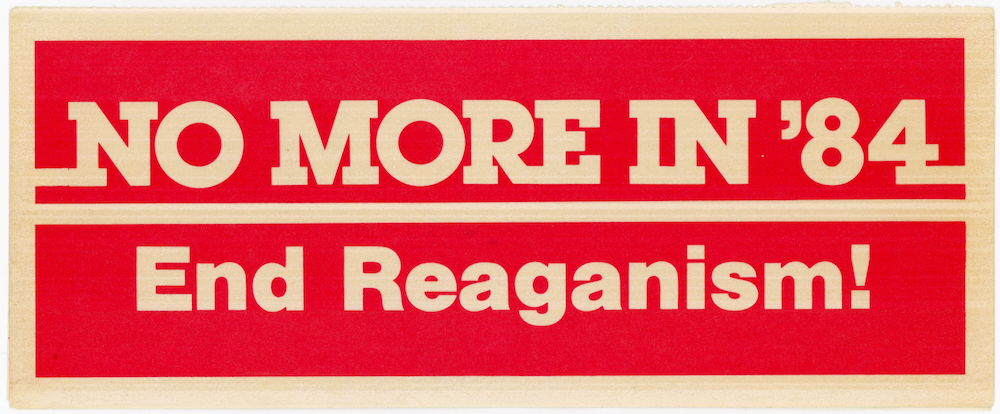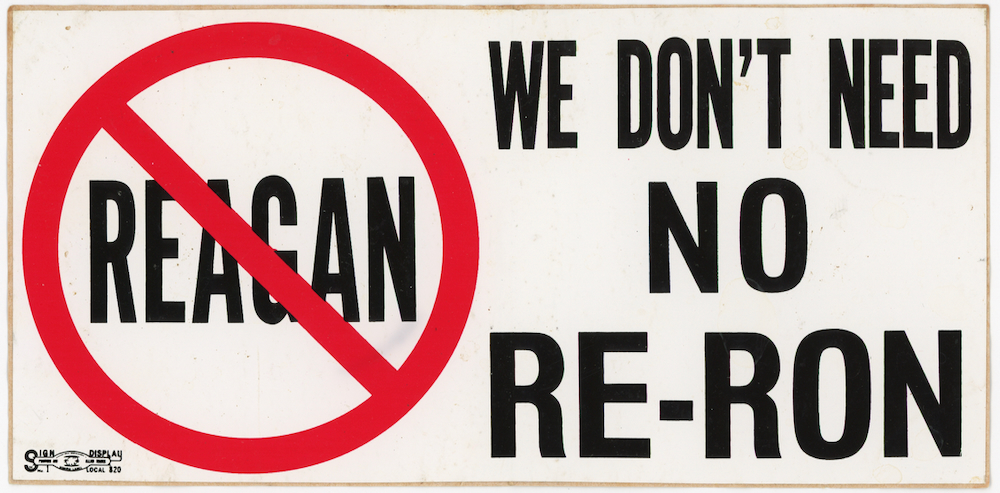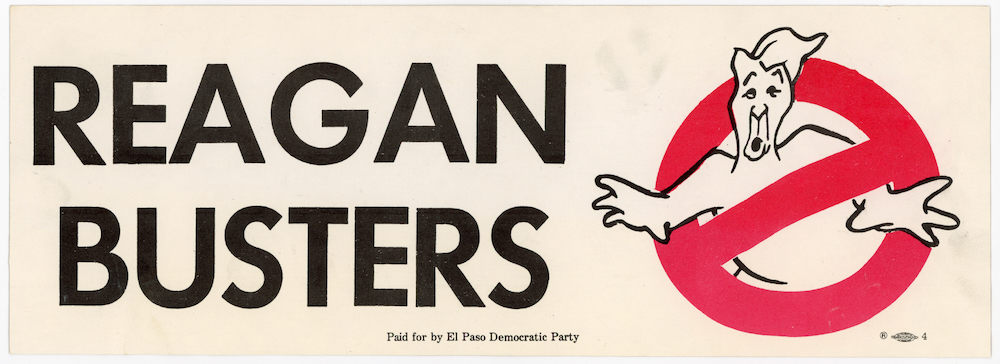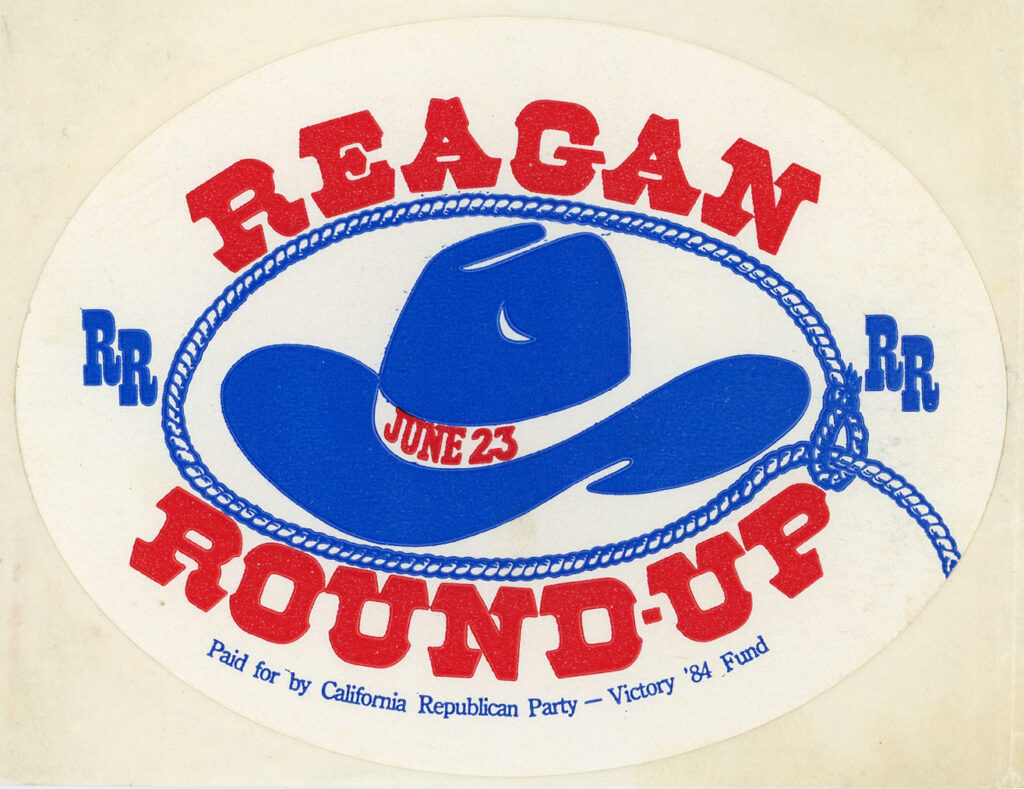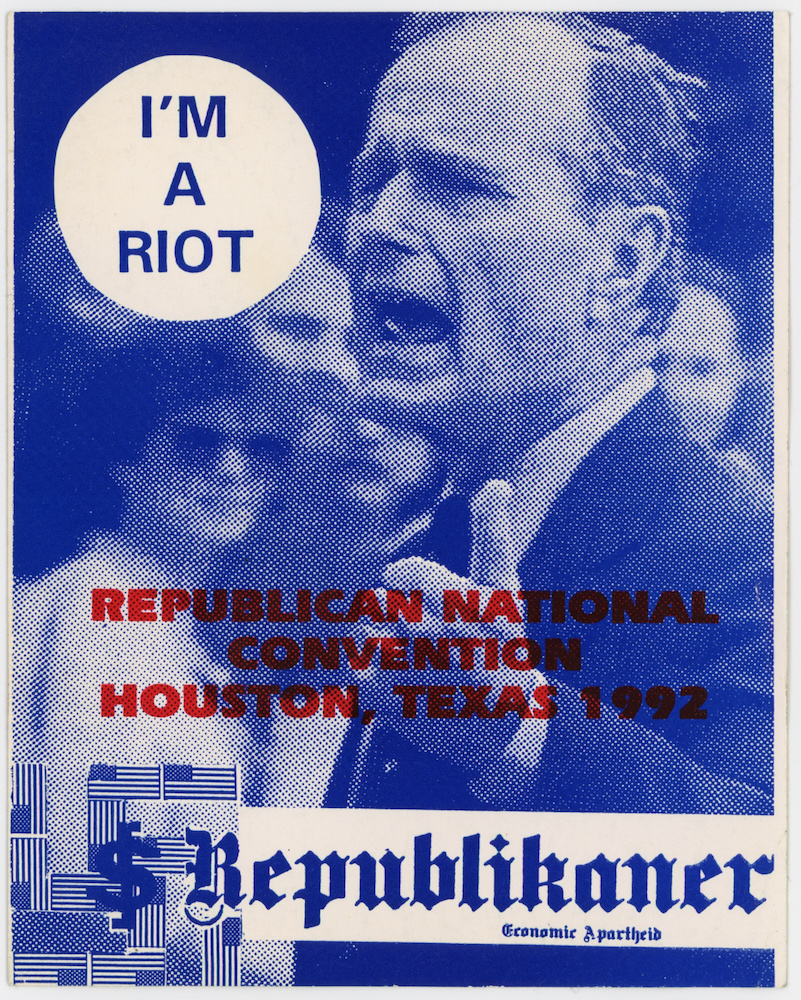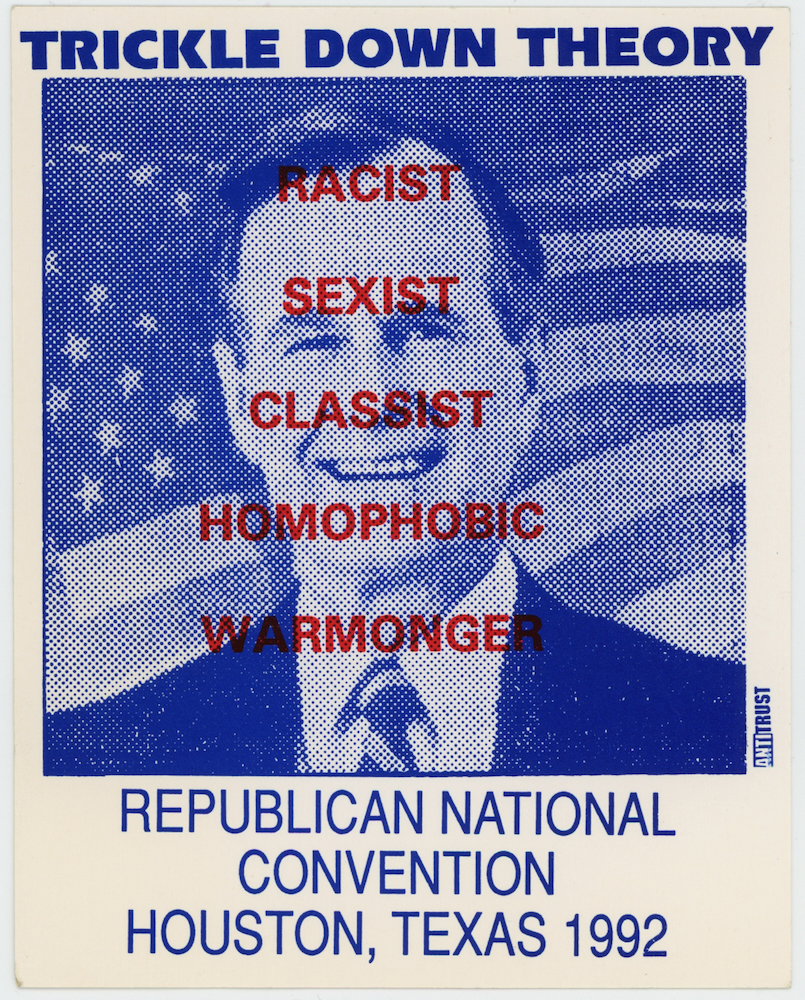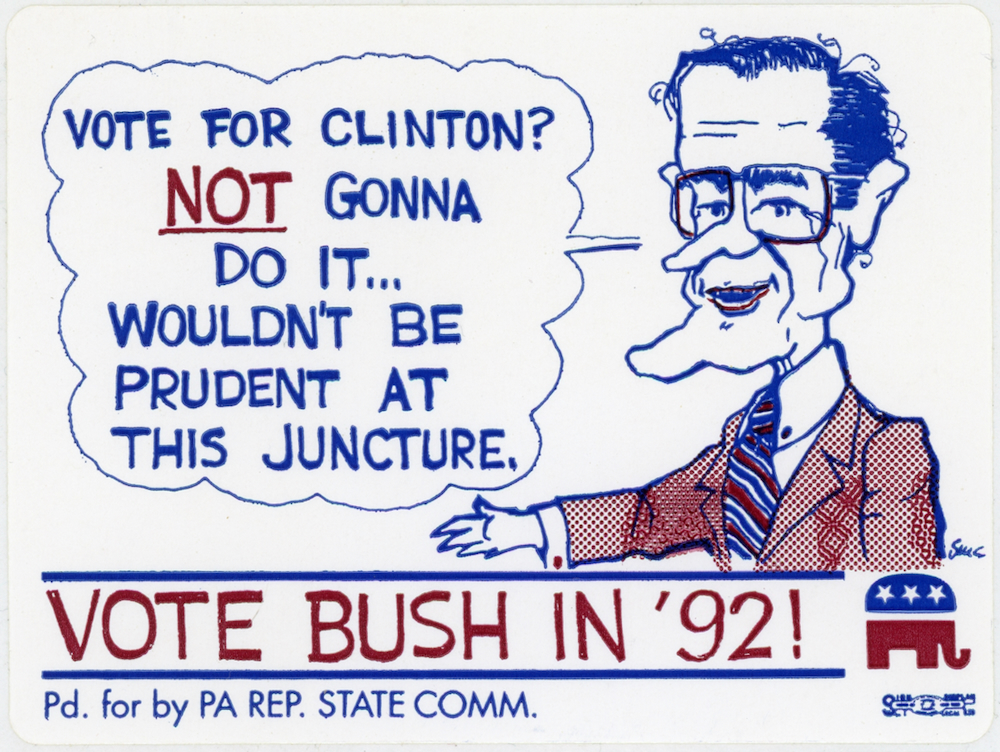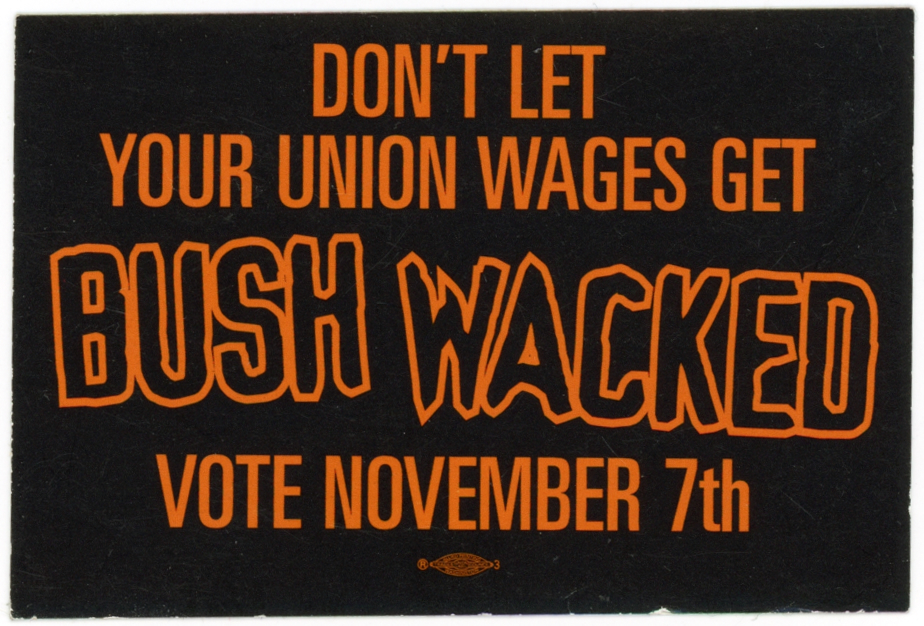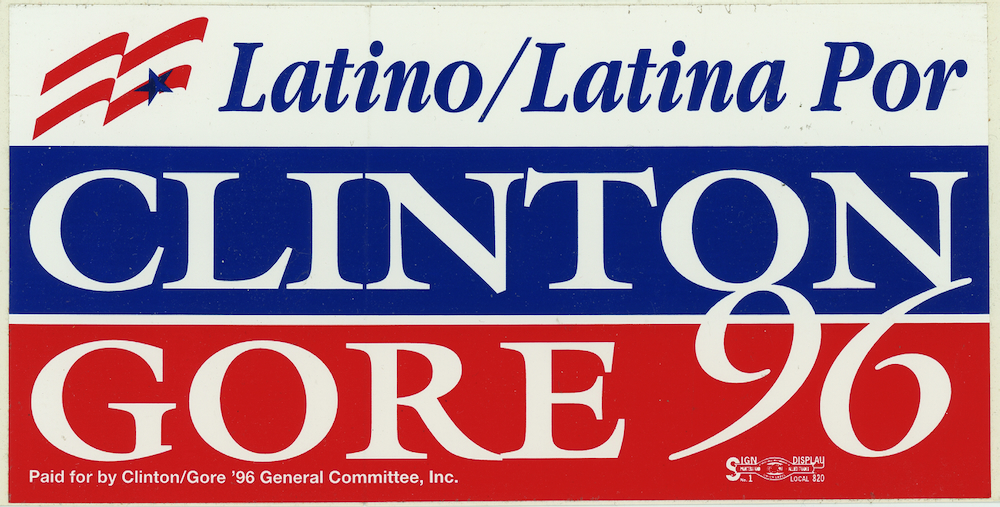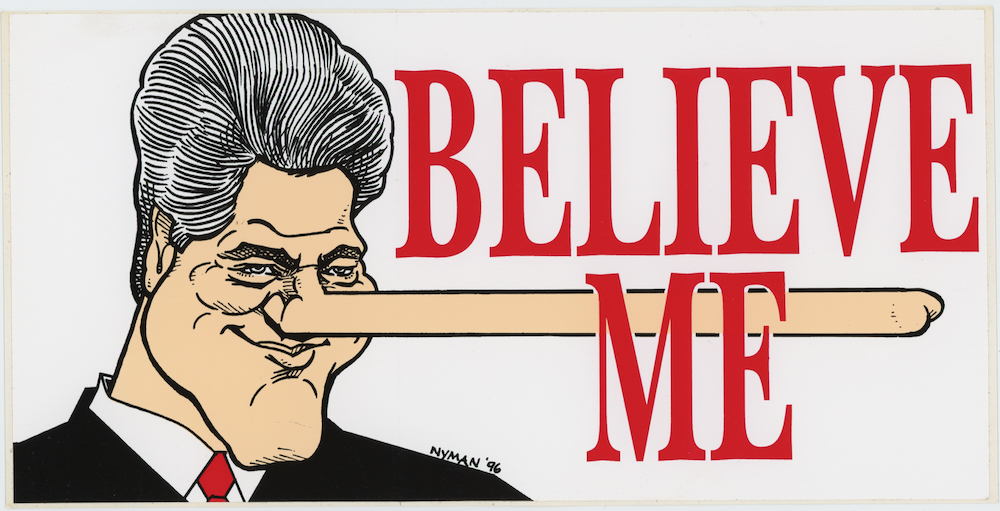U.S. Political Campaign Stickers
- Published
- in "Paper Bullets" exhibition, all
Organized in chronological order with text from Wikipedia (accessed February 17, 2024).
Franklin Delano Roosevelt (January 30, 1882 – April 12, 1945), commonly known as FDR, was an American politician who served as the 32nd president of the United States from 1933 until his death in 1945. He was a member of the Democratic Party and is the only U.S. president to have served more than two terms. His initial two terms were centered on combating the Great Depression, while his third and fourth saw him shift his focus to America’s involvement in World War II.
Alfred Mossman Landon (September 9, 1887 – October 12, 1987) was an American oilman and politician who served as the 26th governor of Kansas from 1933 to 1937. A member of the Republican Party, he was the party’s nominee in the 1936 presidential election, and was defeated in a landslide by incumbent President Franklin D. Roosevelt.
Wendell Lewis Willkie (born Lewis Wendell Willkie; February 18, 1892 – October 8, 1944) was an American lawyer, corporate executive and the 1940 Republican nominee for president. Willkie appealed to many convention delegates as the Republican field’s only interventionist: although the U.S. remained neutral prior to Pearl Harbor, he favored greater U.S. involvement in World War II to support Britain and other Allies. His Democratic opponent, incumbent President Franklin D. Roosevelt, won the 1940 election with about 55% of the popular vote and took the electoral college vote by a wide margin.
Thomas Edmund Dewey (March 24, 1902 – March 16, 1971) was an American lawyer and politician who served as the 47th governor of New York from 1943 to 1954. He was the Republican Party’s nominee for president of the United States in 1944 and 1948, losing the latter in a major upset to Harry S. Truman. The 288 combined electoral votes Dewey received from both elections place him second behind William Jennings Bryan as the candidate with the most electoral votes who never acceded to the presidency.
Dwight David Eisenhower (born David Dwight Eisenhower; October 14, 1890 – March 28, 1969), nicknamed Ike, was an American military officer and statesman who served as the 34th president of the United States from 1953 to 1961. During World War II, he was Supreme Commander of the Allied Expeditionary Force in Europe and achieved the five-star rank as General of the Army. Eisenhower planned and supervised two of the most consequential military campaigns of World War II: Operation Torch in the North Africa campaign in 1942–1943 and the invasion of Normandy in 1944.
Lyndon Baines Johnson (August 27, 1908 – January 22, 1973), often referred to by his initials LBJ, was an American politician who served as the 36th president of the United States from 1963 to 1969. He became president after the assassination of John F. Kennedy, under whom he had served as the 37th vice president from 1961 to 1963. A Democrat from Texas, Johnson also served as a U.S. representative and U.S. senator.
John Fitzgerald Kennedy (May 29, 1917 – November 22, 1963), often referred to as JFK or Jack, was an American politician who served as the 35th president of the United States from 1961 until his assassination in 1963. He was the youngest person elected president. Kennedy served at the height of the Cold War, and the majority of his foreign policy concerned relations with the Soviet Union and Cuba. A Democrat, Kennedy represented Massachusetts in both houses of the U.S. Congress prior to his presidency.
Robert Francis Kennedy (November 20, 1925 – June 6, 1968), also known by his initials RFK and by the nickname Bobby, was an American politician and lawyer. He served as the 64th United States attorney general from January 1961 to September 1964, and as a U.S. senator from New York from January 1965 until his assassination in June 1968, when he was running for the Democratic presidential nomination. Like his brothers John F. Kennedy and Ted Kennedy, he was a prominent member of the Democratic Party and is an icon of modern American liberalism.
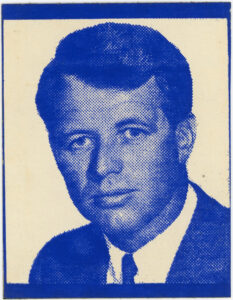
George Corley Wallace Jr. (August 25, 1919 – September 13, 1998) was an American politician who served as the 45th governor of Alabama for four terms. He is remembered for his staunch segregationist and populist views. During Wallace’s tenure as governor of Alabama, he promoted “industrial development, low taxes, and trade schools.” Wallace sought the United States presidency as a Democratic Party candidate three times, and once as an American Independent Party candidate, being unsuccessful each time. Wallace opposed desegregation and supported the policies of “Jim Crow” during the Civil Rights Movement, declaring in his 1963 inaugural address that he stood for “segregation now, segregation tomorrow, segregation forever.”
Barry Morris Goldwater (January 2, 1909 – May 29, 1998) was an American politician and major general in the Air Force Reserve who served as a United States senator from 1953 to 1965 and 1969 to 1987, and was the Republican Party‘s nominee for president in 1964.
Hubert Horatio Humphrey Jr. (May 27, 1911 – January 13, 1978) was an American politician and statesman who served as the 38th vice president of the United States from 1965 to 1969. He twice served in the United States Senate, representing Minnesota from 1949 to 1964 and 1971 to 1978. As a senator he was a major leader of modern liberalism in the United States. As President Lyndon B. Johnson‘s vice president, he supported the controversial Vietnam War. An intensely divided Democratic Party nominated him in the 1968 presidential election, which he lost to Republican nominee Richard Nixon.
Eugene Joseph McCarthy (March 29, 1916 – December 10, 2005) was an American politician, writer, and academic from Minnesota. He served in the United States House of Representatives from 1949 to 1959 and the United States Senate from 1959 to 1971. McCarthy sought the Democratic presidential nomination in the 1968 election, challenging incumbent Lyndon B. Johnson on an anti-Vietnam War platform. McCarthy unsuccessfully ran for U.S. president four more times.
Richard Milhous Nixon (January 9, 1913 – April 22, 1994) was the 37th president of the United States, serving from 1969 to 1974. A member of the Republican Party, he previously served as a representative and senator from California and as the 36th vice president from 1953 to 1961 under President Dwight D. Eisenhower. His presidency saw the reduction of U.S. involvement in the Vietnam War, détente with the Soviet Union and China, the Apollo 11 Moon landing, and the establishment of the Environmental Protection Agency and Occupational Safety and Health Administration. Nixon’s second term ended early when he became the only U.S. president to resign from office, as a result of the Watergate scandal.
Richard M. Nixon (click on link for separate page of stickers).
George Stanley McGovern (July 19, 1922 – October 21, 2012) was an American historian and South Dakota politician who was a U.S. representative and three-term U.S. senator, and the Democratic Party presidential nominee in the 1972 presidential election.
James Earl Carter Jr. (born October 1, 1924) is an American politician and humanitarian who served as the 39th president of the United States from 1977 to 1981. A member of the Democratic Party, Carter was the 76th governor of Georgia from 1971 to 1975, and a Georgia state senator from 1963 to 1967. At age 99, he is both the oldest living former U.S. president and the longest-lived president in U.S. history.
Ronald Wilson Reagan (February 6, 1911 – June 5, 2004) was an American politician and actor who served as the 40th president of the United States from 1981 to 1989. A member of the Republican Party, his presidency constituted the Reagan era, and he is considered one of the most prominent conservative figures in American history.
George Herbert Walker Bush (June 12, 1924 – November 30, 2018) was an American politician, diplomat,[2] and businessman who served as the 41st president of the United States from 1989 to 1993. A member of the Republican Party, he also served as the 43rd vice president from 1981 to 1989 under Ronald Reagan, and in various other federal positions prior to that.
William Jefferson Clinton (born William Jefferson Blythe III, August 19, 1946) is an American politician who served as the 42nd president of the United States from 1993 to 2001. A member of the Democratic Party, he previously served as Governor of Arkansas from 1979 to 1981 and again from 1983 to 1992. Clinton, whose policies reflected a centrist “Third Way” political philosophy, became known as a New Democrat.
George Walker Bush (born July 6, 1946) is an American politician and businessman who served as the 43rd president of the United States from 2001 to 2009. A member of the Republican Party, he previously served as the 46th governor of Texas from 1995 to 2000.
George W. Bush (click on link for separate page of stickers).
Barack Obama Sticker Robot commissions (click on link for separate page of stickers).
Barack Obama 2008 and 2012 campaigns (click on link for separate page of stickers).
